gair rhydd
Monday October 20th 2014 | freeword | Issue 1034
In this week’s issue: We say what the NUS gets wrong, share the outlook on devolution in Wales and Scotland, and reveal the results of the Students’ Union by-election


Monday October 20th 2014 | freeword | Issue 1034
In this week’s issue: We say what the NUS gets wrong, share the outlook on devolution in Wales and Scotland, and reveal the results of the Students’ Union by-election

The NHS is set to charge international students fees as early as next year, a Gair Rhydd investigation can reveal. These changes come as part of wider coalition plans to charge for access to NHS services. Changes to international student visas also include a requirement for landlords to check the immigration status of potential tenants, increasing the administrative burden of renting a property.
The “health surcharge” will cost
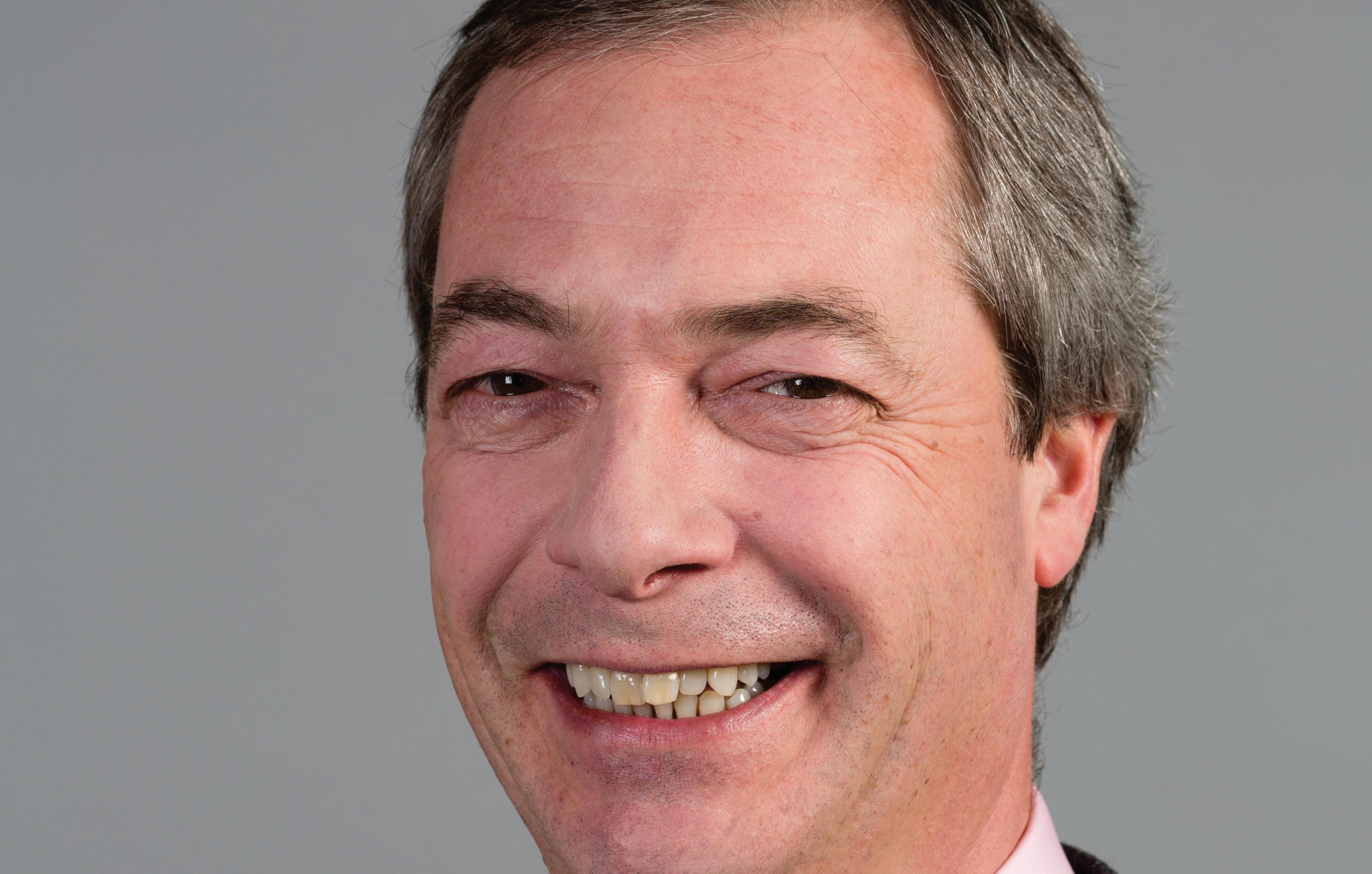
international students £150 a year, to be paid for as part of a revamped student visa. Upon arriving in the country, students will then be able to access services to the same level as a permanent resident. Those currently studying will be unaffected, but new students will be expected to pay on application for a visa, regardless of how much of an impact they are likely to make on the service during their time here.
A Home Office spokesperson confirmed to Gair Rhydd that these
plans were set to go ahead, with nonEU residents in other categories set to be charged up to 150 per cent the cost of treatment.
A number of organisations have raised concerns about the wider plans to charge visitors for access to NHS services. The TUC warned that some pregnant women “may go through the pregnancy without any access to antenatal care,” thereby increasing the risk of dangerous complications.
The legislation has been drafted in order to prevent “health tourism,”
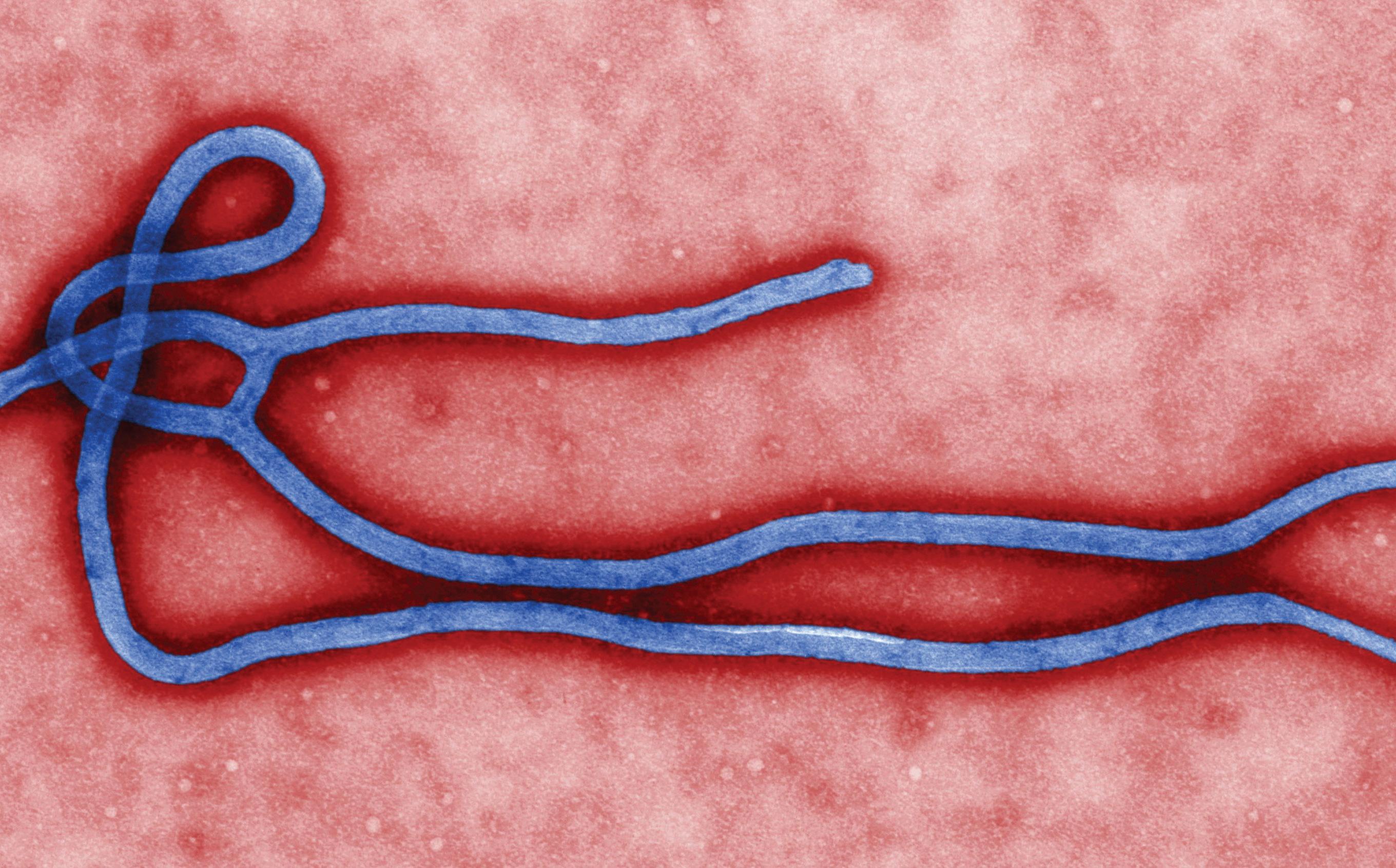
where visitors come to the UK for free healthcare. An audit into NHS services revealed that the NHS was unable to estimate how many health tourists there actually are, and, as such, cannot estimate how much of a problem health tourism actually is; Jeremy Hunt, the current Health Secretary, estimated it cost the UK economy around £12m each year. Even if the focus is solely on health tourists, that does not explain why the legislation is targeting international students, who are unlikely to burden
(Photographer: Department for Culture, Media and Sport)

Continued on page 4
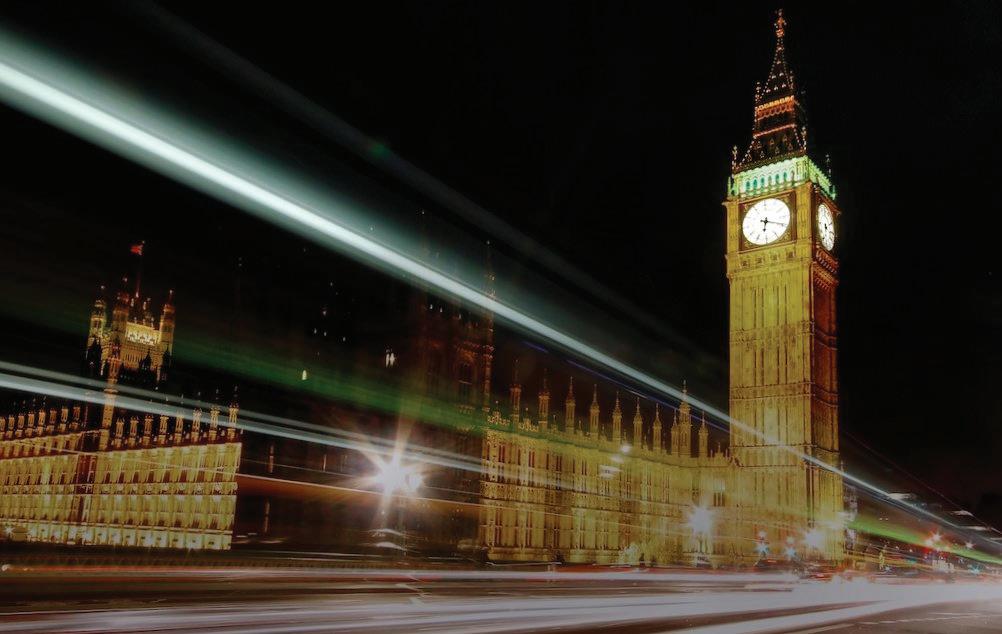 Michael O’ConnellDavidson
Michael O’ConnellDavidson
EDITOR (on leave)
Tom Eden
ACTING EDITOR
Michael O’Connell-Davidson
GAIR
RHYDD CO-ORDINATOR
Elaine Morgan
NEWS
Georgia Hamer
Katie Evans
COMMENT
Anne Porter
Olivier van den Bent-Kelly
Zach Hughes
COLUMNIST
Jason Roberts
POLITICS
Carwyn Williams
SCIENCE
Shanna Hamilton
Meryon Roderick
TAF-OD
Steffan Bryn Jones
Morgan Owen
SPORT
David Hooson
Rory Benson
Joe Atkinson
SOCIETIES
Hannah Sterritt
PARK LIFE
Tim Nagle
EDITORIAL ASSISTANTS
Anna Athanasiadis
Holly Duhig
Ellie Sanson
Amin Rali
Sum Sze Tam
Want to join the team?
We hold editorial conferences each Monday on 5PM in the student media office on the Third Floor of the union, so come along with any ideas you have. Proofreading takes place every Thursday night from 6PM in the same place. All are welcome.
Alternatively, search “Gair Rhydd Contributors” on Facebook to join our contributors group, where we’ll be giving out articles online.
Tweet us: @gairrhydd
Email Us: editor@gairrhydd.com Online at: gairrhydd.com
At Gair Rhydd we take seriously our responsibility to maintain the highest possible standards. If you believe we have fallen below these standards, please email editor@gairrhydd.com
You can view our Ethical Policy Statement and Complaints Procedure at www.cardiffstudentmedia.co.uk/ complaints
Westminster is far away, and not just in terms of distance. It is disconnected from the lives of ordinary people living in Wales, whether living in Cathays for the few years they study in Cardiff, or permanent residents who were born and raised here.
The 2015 general election - next year’s general election - is chronologically distant, too.
But even so, the wheels are already in motion, and there will be no avoiding whatever conclusion the wider United Kingdom will reach. Russell Brand’s revolting ‘revolution’ where our right to vote is neglected should not (and shall not) come to pass. But people in this country deserve the information required to make an informed decision.
Those interested in furthering democracy should support the Green Party in their efforts to be included in mainstream political
coverage. There is no reason they should be exempted - indeed, with a vote share in many constituencies outstripping those of the Liberal Democrats, what excuse is there to leave them out?
The Green Party are not the BNP. They are not the flat earth society, nor a minority interest party. They are a political force that beat UKIP to Westminster.
The news that UKIP is to be included on some Leaders’ debates (they are currently confirmed to appear on ITV, and other stations may follow suit) shows a significant right wing bias not just in the media, but in the way people think about politics. The repeated predictions of a “political earthquake” from both UKIP’s supporters and detractors are yet to bear fruit. Where were these predictions when the Greens got their first MP? What earthquakes have the
Greens been responsible for, beyond some ceremonial back-patting on the left?
When continuously repeated, such prophecies tend to be self-fulfilling. Perhaps the greens would have created an earthquake if they were given a voice; when placed next to the political voldemort that is Nigel Farage, however, they have been made to seem ruefully insignificant.
If UKIP or any other party win an election fairly, we would be remiss to begrudge them. But omitting entire groups with MPs from the televised debates will perpetuate a media landscape where no party can win fairly. The SNP and Plaid Cymru should also be invited to join debates where appropriate (so as not to create a live-action version of the West Lothian problem) for the same reasons: the public need enough information to make their vote count.
Student papers must not be muzzled
What would you do if you received an email suggesting that you might be face a disciplinary or be expelled from university? If you had committed a wrong and understood your error, you might be tempted to accept your fate.then
But what if that situation arose due to you following your convictions? According to Katie French, who was the editor of The Knowledge during the pevious academic year, that’s precisely what happened to her. The Knowledge is the University of Plymouth’s student newspaper.
It’s well regarded, and by all accounts, French made a capable editor. It is certainly regarded more highly than the University of Plymouth, which has been the subject of scandal after scandal in recent months due to its questionable financial management.
While I’m not qualified to make comment on the university’s finances (I got a 2:2 in Economics
during my first year at Cardiff, and I’m more than glad to have left CARBS behind), I’d suggest that I am qualified to speak about university newspapers. No student journalist should face having their education denied as the result of a legitimate investigation, and no institution is more important than the public interest. It takes a truly arrogant individual to make movements to the contrary, yet it is all too common as far as student newspapers are concerned.
We’re lucky at Cardiff. The Gair Rhydd is afforded freedom; the editor is the last person to see the newspaper before it goes to print, and there is a long-standing relationship of trust between the SU and the editorial team. That isn’t to say that such a relationship hasn’t been strained in the past (and, indeed, for as long as we continue to investigate and run ‘real news’, it’s likely to be strained again), but it’s a far cry from students’ unions with rampant sabbatical officers and media-illiterate man-
agement teams.
We’re lucky because we’re the exception, but not the rule. That strikes me as odd, because having a good newspaper is nothing but good PR in the long run (and that’s ignoring all the other benefits). How many great people or governments in history have stood in the way of freedom of expression? It’s hardly the policy of heroes.
Katie French’s situation (which UPSU has vowed to investigate) is all too common. Students’ Unions and Universities who wish to improve their image should not attack the words or operations of those courageous enough to speak the truth. Instead, they should fix the problems that encouraged them to speak out in the first place.
Student Journalists can be unruly. But Cardiff University has one of the best journalism schools in the country, and the Gair Rhydd has a good track record. I can only hope our relationship of mutual trust and understanding continues into the future.
Iam not well travelled. I still find the idea of Spain exciting. Thankfully, I’m lucky enough to have a girlfriend who is, with another country’s passport and the knowledge of another country’s culture. If nothing else, it’s a great conversation starter. Nothing quite trumps “chicken feet” when you talk about the weird food you’ve eaten, yet it was something she encouraged me to try when I travelled to Hong Kong to meet her family and visit her home.
We have a great relationship which has shown that certain things transcend national and cultural boundaries. We would not have it if she was unable to study here - we would, quite literally, be on opposite sides of the earth.
She does not come from a rich background, and more than many home students, she has felt the same financial squeeze each of us has following the global recession.
It has given me a different perspective on issues
I might otherwise be disconnected from. Without her, it is unlikely that I would have called the foreign office (later the Home Office and the Department for Health) and asked how changes to NHS costs to non-EEA residents would effect students.
Without her, I wouldn’t have felt the same sort of anger that she and her peers felt on seeing that the university had bumped up costs for international students again. Yes, fees are locked for the new intake - but that’s a cold comfort for somebody entering the third year of their degree.
The university knows that students entering their third year (quite literally) cannot afford to back out of their final year. But that is no justification for literally putting them over a barrel and forcing them to cough up.
Our relationship provides a picturesque narrative of the university relationship, and has left us both with a testimony that reflects upon Cardiff as
a university positively. But each time fees increase, that same narrative becomes less and less likely to be replicated.
Some things are worth more than any amount of money. It is a shame that the current government has become so hell-bent on destroying the United Kingdom’s reputation as a tolerant nation. The nation’s descent into tepid isolation from the rest of the world has been encouraged by the media, of course. But politicians have done very little to resist, making changes that will only serve to impoverish the UK in the long run. Our generation can only suffer from the consequences of this myopic approach to foreign policy. Universities should do more to resist, and avoid taking the easy money at the expense of the international student community. If they care about cultivating graduates with an understanding of the world outside of our borders, then they have to.

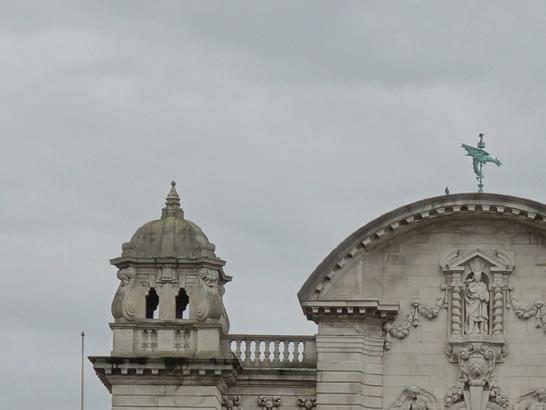
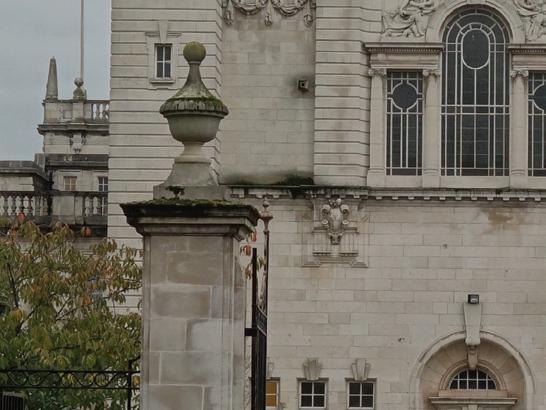

People and Planet have an axe to grind with regards to the ‘Anti-Homeless Cage’, a story which continues to captivate anybody with a heart. e society placed a banner on the ‘cage’ that advised bystanders to be mindful of the homeless - a noble sentiment that I think we can all get behind. ( e banner was removed on the same day it was placed, although it’s likely that the banner - and the society itself - will return to the scene.)
It’s interesting how everybody has immediately assumed the position of somebody who is an expert in the venting of dangerous chemicals, but regardless, a number of points were raised on and off social media about the vents. Many noted that the vents were unguarded for years - so why has the change only just been made?
Outside of the area surrounding the biosciences building, things have been rather less exciting. I mean, it’s been pretty rainy, but I think that’s only surprising to horrible southerners (like myself) and students from sunnier climates.
One event of note were this week’s by-elections, which saw a number of students campaign for positions on the student senate, scrutiny commitee, and others. e union was also seeking new a International Students Officer and a new Postgraduate Students Pfficer.
e latter two positions were awarded to Megan Jevin and former sabbatical officer Ollie Wannell. Others previously involved in student politics who won out included Elliot Howells, who currently serves as the Students’ Union President, and Laura Carter, who currently serves as the Women’s Officer. Both were elected as NUS delegates. Steffan Bryn Jones, who serves this publication as the coeditor of the Welsh Language Section, was also successful in being elected as an NUS Wales Delegate on behalf of the SU.
Lastly, we’d like to extend congratulations to Park Life editor Timothy Nagle, who edits the Park Life section of Gair Rhydd. On top of delivering some top quality content in last week’s issue,
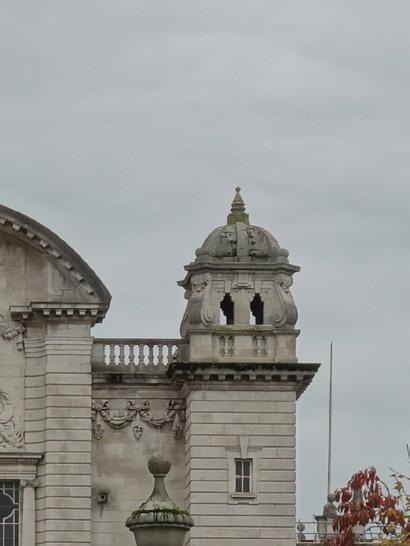

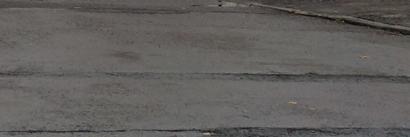
he also delivered a baby. Well, not quite, but his partner gave birth last Friday to a lovely baby boy. From everybody at Gair Rhydd, congratulations, Tim! (And before anybody says this is frivolous, I’d just like to say that I think a new life is rather more important than any press release I might like to re-word).
Politicians continue to make loud noises about ebola, with claims that it may have penetrated or be about to penetrate our airports continuing from last week. ere has been little to no movement on the subject since the last Gair Rhydd went to print, however. ose interested in the subject are encouraged to read Shanna Hamilton’s fantastic feature on the subject, included in this issue on page 18.
Caerphilly council attracted criticism by releasing a report that would take “thirteen years of education” to understand, according to the findings of the Trinity Mirror data unit; Cardiff Council’s report was only “marginally more accessible,” requiring just twelve. Attacks on the report included conjectures that Stephen Hawking’s (surprisingly accessible) book ‘A Brief History of Time’ was easier to understand. Police have warned that the “threat of extremist attack” in the UK is escalating. ey’ve been warning this for a while now, but there have already been 218 terror related arrests this year - to give that figure a bit of perspective, we’re 289 days into the year.
e Conservative party has hardened its stance on Europe (despite David Cameron saying that Europe should remain in the EU at every possible opportunity) and, unexpectedly, disabled people. A damning recording of Lord Freud, parliamentary undersecretary for Work and Pensions, emerged, where he claimed that the disabled were “one group” who “weren’t worth” the minimum wage. Despite calls for his resignation or sacking, Freud has hung on against the odds.

Michael Gove was rather less controversial, telling the media that his favourite Game of rones character was Tyrion Lannister. Danny Dyer met Ed Miliband, and both seemed to emerge from the experience baffled; Media Guido reports that Dyer reflected on the experience by describing it as “all a bit too heavy.”
A “Kiss-In” was held in a Sainsburys store in Brighton after a lesbian couple were told that another customer found them “disgusting.” Hundreds attended, including, I hope, a mystery shopper with one hell of a report to write.
Every single Golden Dawn MP is to face trial for a litany of crimes up to and including murder. (For those unfamiliar, Golden Dawn is a neo-nazi party in the Greek Parliament). And you thought our political scandals were bad!
e final arguments were made in the Oscar Pistorius case, with the sentence most likely to be announced on Tuesday. A number of threats have been made against Pistorius by inmates in the Kgosi Manpuru prison, where he is most likely to be housed in event of a custodial sentence; unsurprisingly, however, Pistorius is unlikely to be placed in a general prison wing.
Venezuela, normally regarded as a nation that stands apart from large international institutions, has been elected to the UN Security council.
Lockheed Martin have announced that they should be able to produce a truck sized nuclear reactor in the next ten years. Interestingly, the type of nuclear reactor they’re talking about building isn’t a fission reactor, it’s a fusion reactor. It would be preferable if we could solve the energy crisis without destroying the planet in the process, so while Nuclear power isn’t normally something worth getting excited about, this is a welcome breakthrough - while it’s not wind, fusion is a much cleaner form of energy than most.
Caerphilly council attracted criticism by releasing a report that would take “thirteen years of education” to understand “ ”

the NHS with any major operations.
As health is a devolved matter, the health surcharge will be billed to those studying in all parts of the UK, and then distributed between the Department of Health and the relevant devolved authority.
A policy paper set out by the Home Office described the current system, where temporary migrants were afforded the same care as permanent residents, was “very generous, particularly when compared with international practice.”
e former minister for immigration, Mark Harper MP, said that “the government is building a fairer immigration system which addresses the concerns of hardworking people. e Immigration Bill will tighten immigration law, strengthen our enforcement powers and clamp down on those from overseas who try to abuse our public services.”
“We have been clear that the UK has a national health service, not an international health service. ese proposals will ensure that migrants here temporarily make a fair contribution to the cost of health services in the UK.”
Speaking earlier in the year, Health Secretary Jeremy Hunt concurred, saying that he “had no problem with migrants using the NHS, as long as they paid for it.”
A number of international students
agreed to give their opinions to Gair Rhydd. One said that they were “glad they came to university the year [they] did,” confirming that they were set to graduate before these plans were implemented. ey added that they did not know about the NHS before they arrived, and that free healthcare did not factor into their decision. “It doesn’t seem right that I have to pay a lump sum and not on a use-by-use basis.”
Another international student who spoke to Gair Rhydd said that they already paid over £20,000 a year in fees and living expenses, which is money introduced to the UK economy from abroad. As a humanities student, she is on the lower end of costs; Clinical students pay more than £20k each year for tuition alone, with some postgraduate fees being far higher.
A student studying a clinical subject said that she thought “it was a little too much to ask. We pay enough [already] to use this service. ey shouldn’t make any more money from us.” Another added they thought they were already paying a lot for university tuition and visa fees. “I have been lucky enough to be healthy and not have to use the NHS service. From my experience, that amount of money sounds like too much.”
A home student who spoke to Gair Rhydd said that she did not think the
Club night YOLO is here to stay, according to Union President, Elliot Howells.
In a statement to Gair Rhydd, Howells confirmed that ‘there are no plans to change the name of Y Plas’ Wednesday-night event.
Despite experiencing backlash from a number of students who disapprove of the new name, Howells suggests the success of ‘YOLO’, a Student Union-run event, should be measured by the number of students attending.
‘I guess the best indicator is numbers through the door and they have been better than ever’, writes Howells, adding that the Union ‘physically couldn’t get any more people in’ on one
Wednesday night.
The club night’s previous name, The Lash, was changed, coinciding with the extensive renovations of the Students’ Union’s first floor, amid concerns the previous name encouraged lad culture.
Howells defended the name change against negative feedback, explaining that the new name is ‘inoffensive and the move to YOLO from The Lash just demonstrates our commitment to tackling ‘Lad Culture’ on campus.’
Howells also hinted to upcoming events, adding that ‘there is a whole concept that goes behind the name that will be announced soon.’
plans were fair. “[International students] already pay a huge amount of money to study here.” Another agreed, saying that “international students are charged exorbitant fees to study here, and now we’re just shafting them another way.”
“It’s only fair that certain treatments are paid for. Treating problems like Kidney Cancer costs a huge amount, and people shouldn’t be able to receive that on the NHS without having paid into the system,” one said. “But university students are different. Nobody is going to sign up to study for a degree just to get free treatment.” e Immigration Bill 2014 states that certain discretionary treatments are exempted from the mandatory health surcharge.
Speaking to Gair Rhydd, a university spokesperson said that they “do not anticipate” that the surcharge will impact the institution’s ability to redirect. ey added that the organisation was “concerned that it may add to the perception that the UK does not welcome and value international students.”
“We continue to lobby, both individually and via Universities UK, for a fair and transparent immigration system which protects the rights of legitimate students in the UK. International students add enormously to the cultural diversity and vibrancy of Cardiff ’s learning and teaching environment, which benefits everyone.”
e economic impact of study on international students has long been a topic of concern for students and institutions alike, with universities deriving a significant amount of income from overseas students. Current international students at Cardiff University were subject to a fee increase this year, despite the institution’s website saying that they had enacted a policy to charge constant fees for the duration of study.
“ ey didn’t even warn us,” one said. “ e increased fees were just presented to me when I went to pay for my third year.” If students refused to pay the increased rates, then they would be forced to withdraw from their program of study. “It’s not like we can negotiate. We just have to take it.”
Current international students were warned that fees were subject to change at the start of their course.
Speaking of the increase in fees this year, Cardiff University told Gair Rhydd that it “was important to make the point that the increase is a combination of inflation and a move to fixed fees for courses of more than one year. [ e wider change] was in response to concerns about affordability from students. In making the change we have simply raised fees in line with anticipated inflation over a three year period and have given students more certainty on costs.”
ACardiff student and resident of Cathays was recently a victim of attempted theft after being chased down the street by her attacker.
e attack took place around 9pm on the 28th of September at one end of Rhymney Street, a popular location for student housing.
“[ e street was] fairly well lit” said the Cardiff student, “but there weren’t many people around that night”.
e student was walking home down the street when a man ran towards her and grabbed her bag, yelling “give me your bag”.
Holding onto the bag whilst the man pulled, the strap broke.
e student then began running away, up the road towards her house yelling at him, the man continuing to
pursue her.
Whist running, the student said she began banging on doors as she ran past to alert her neighbours and to scare off her attacker.
“I surprised myself by how stubborn I was”.
Catching up to her, her attacker threatened to hurt her.
She began running and yelling again, the attacker then apologised before running away. She describes how she “waited for a few minutes outside someone’s door in case he was waiting around the corner to jump out at me and then I ran home.
“I am lucky he didn’t get away with anything and I wasn’t hurt. When I got home I sort of broke, it shook me up quite a bit.”
They didn’t even warn us. [...] It’s not like we can negotiate. We just have to take it. “ ”
Mould and damp stood out as reoccurring issues
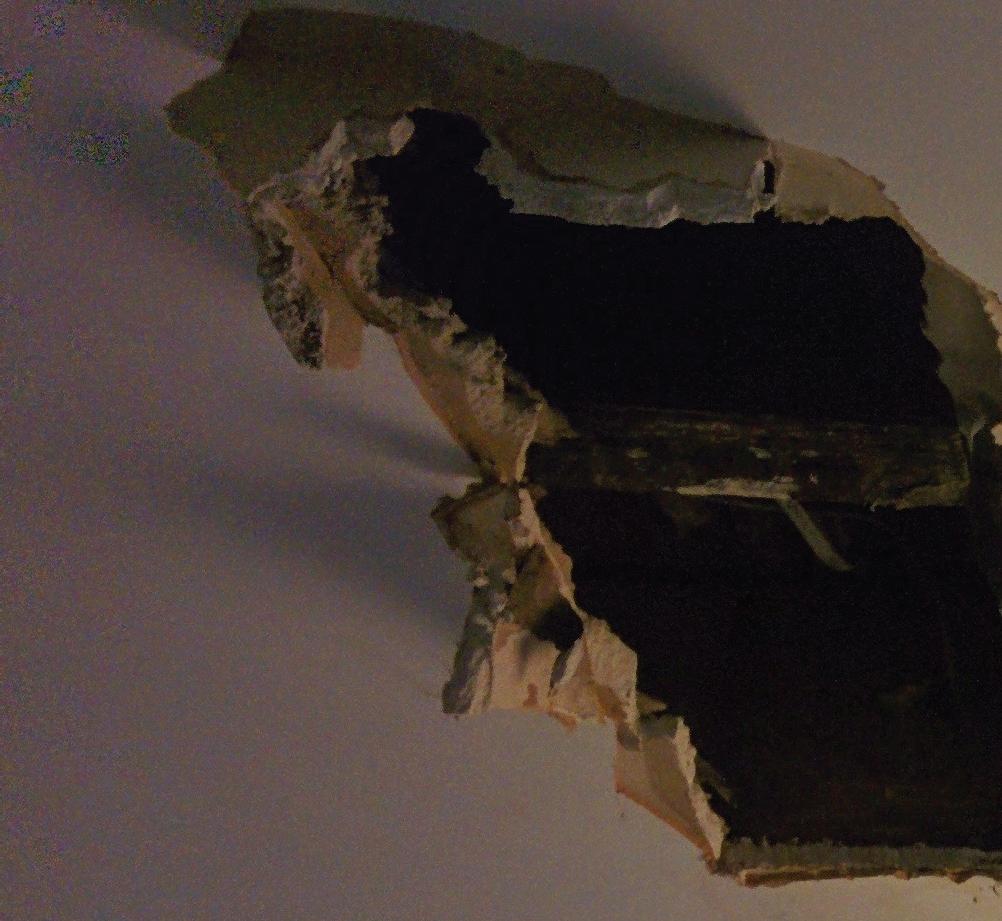

Scores of students have expressed their frustrations at the state of student housing in and around the Cathays area, citing damp, mould and unresponsive letting agencies amongst other issues.
Some of the most shocking responses even claimed poor living conditions had caused student tenants to fall ill, whilst others recounted instances of fungi growing on internal walls.
Despite attempts made by Cardiff University’s Advice and Representation Centre (ARC) to provide helpful advice on how to avoid the pitfalls of student housing, students continue to rent houses that fail to meet basic standards, such as third year student Caroline, who shared her experience of renting with us.
Caroline explained that around March, her and her housemates noticed water “running down [their] living room walls.” She described how the contractor who was sent to their house to inspect the problem “put a take-away container from [their] recycling under the pipe, claiming that it would catch the water which would then “evaporate off ” between showers and that someone would fi x it properly over Easter.”
However, the problem never was resolved. “Nobody ever came back”, says Caroline, “despite our pester-
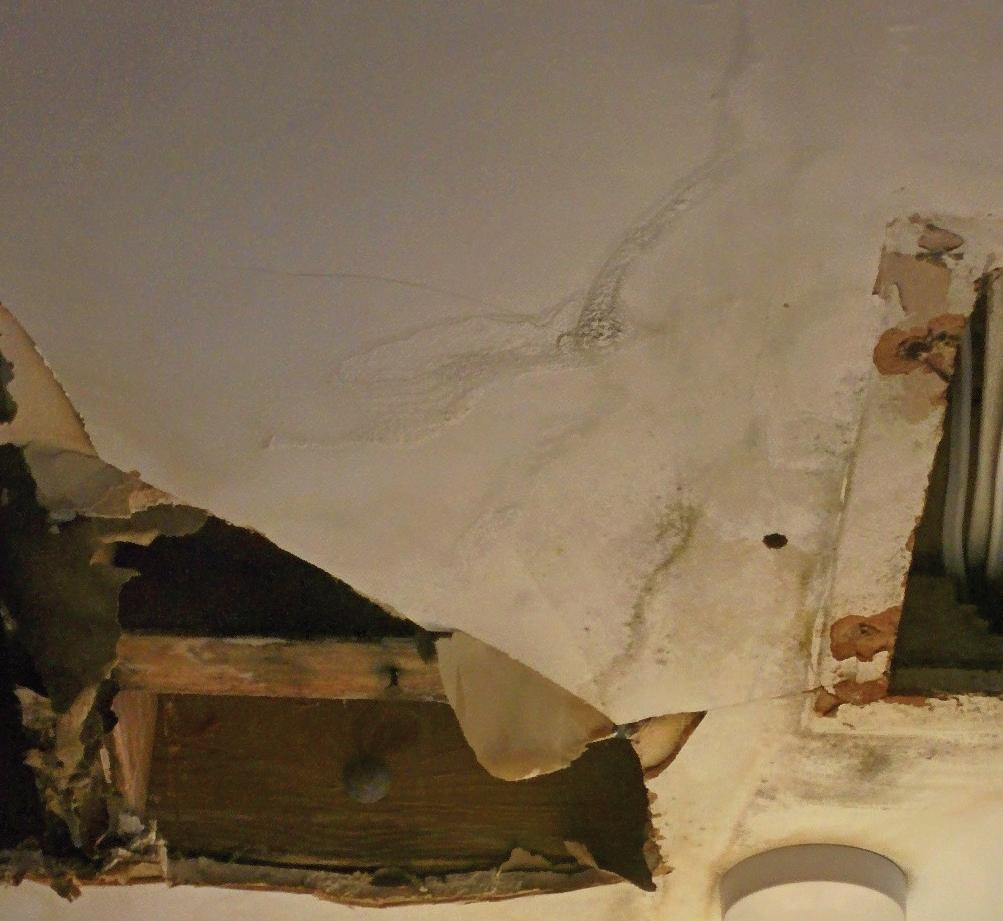

ing, by mid June we had a severe black mould problem and mushrooms growing out of the walls.”
is problem was eventually fi xed, but other respondents raised similar issues. Recent graduate, Harriet, contacted Gair Rhydd with her own student housing experience, claiming that prior to moving in she discovered ‘a huge mushroom on the ceiling.”
e fungi was removed before the tenants had fully moved in but Harriet explains how “there was also other fungi that popped up around the house from time to time,” with a damp expert diagnosing dry rot in the joists supporting her room and the upstairs bathroom.
Mould and damp stood out as reoccurring issues throughout respondents’ statements. Speaking of her housing experience last year, third year student Laura described the problem of mould in her housemate’s bedroom as: “so bad it was covering his wall completely”. e mould was so extensive, Laura claims it caused her housemate to become ill.
Recent graduate, Ashley, recounted a similar story. He described how he experienced ‘breathing difficulties’ after spending time in his room. He said that he went to the hospital who reported that there “must be mould in the

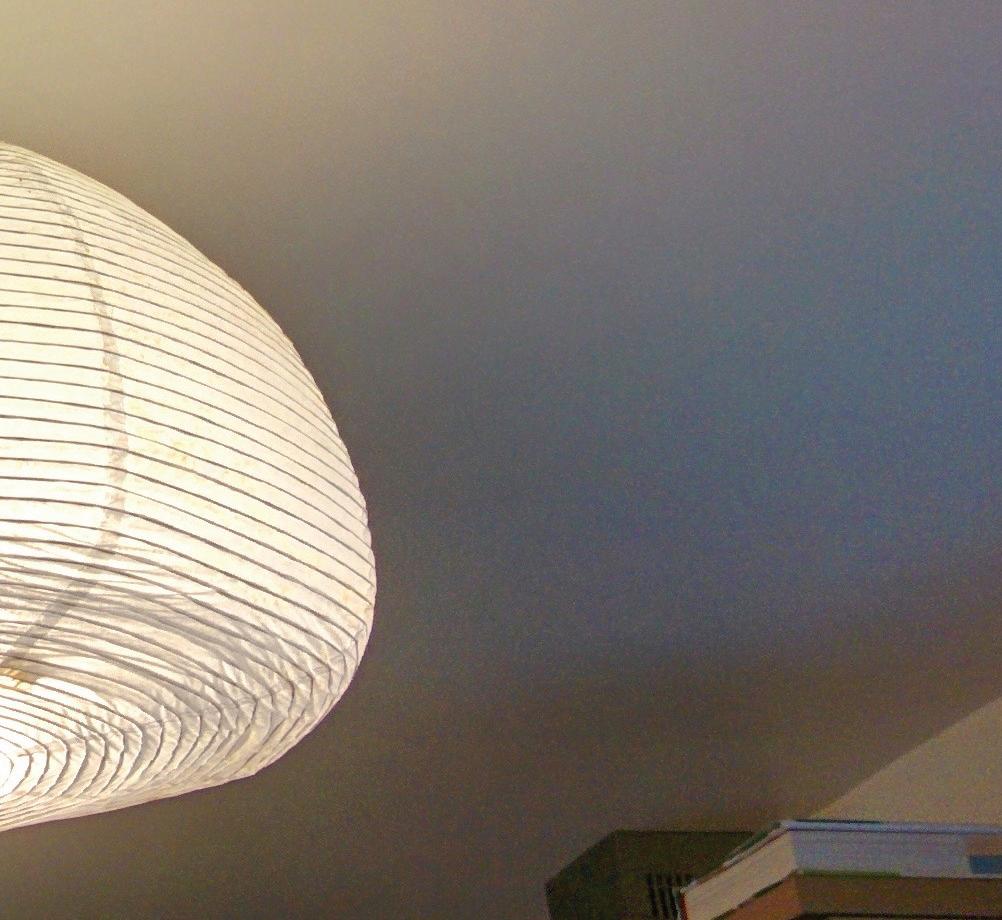
room and that it was an unsafe environment.”
“I spoke to my landlord asking her to do something about it over the phone, she came over and slid a ‘how to avoid mould’ leaflet under the door.’
e lack of urgency shown by letting agents in solving certain problems, as in Ashley’s story, was an issue raised by numerous respondents.
One student in particular recounted how she spent a week without hot water whilst waiting for a plumbing problem to get fi xed.
Another student, who wished to remain anonymous, has described how a serious leak continues to go unresolved by his lettings agency. e leak from his first floor shower room causes water to pool onto the floor of the ground floor kitchen. On multiple occasions, the tenant has sustained minor injuries from slipping on the pooled water, which is often hard to see. He claims that his lettings agency has ‘refused to do anything about it, saying that it was out of their hands’ after having contacted a plumber to resolve the issue.
A third year student encountered a similar issue when her previous lettings agency charged her and her housemates for damages that may have been prevented
had the agency dealt with their reports of a leaking tap when the problem first arose. Kirsty and her housemates were charged £250 upon moving out “because about 6 months before there was a leak that came from the kitchen sink plumbing.’”Upon challenging the charge, Kirsty was given access to insurance documents that revealed the property had previously had issues with plumbing.
e responses given by letting agents, or lack of, regarding housing issues left many respondents frustrated. One student, who wishes to remain anonymous, reports how a pipe in her garden leaked sweage. Despite contacting her agency about the problem, the lettings agency did not even begin to fi x the issue. She also spoke about having mice and damp in her house but felt these issues were so common, she doubted they would be acknowledged.
Bronwen, a second year student, claims that her and her housemates had difficulty in getting their agency to deal with a flea infestation.
“We had a huge problem getting [the lettings agency] to act promptly on the infestation, but after they had treated the house the cleaning was still not done, which meant flea pesticide and dead fleas were everywhere, including our mattresses.”
A student property where the shower has leaked through the ceiling, causing parts of it to fall in.
e leak has continued for over a year without any permanent resolution.
The responses given by letting agents, or lack of, regarding housing issues left many respondents frutrated.


Continued from page 5
Remember: Housing week starts November 24th and lasts until November 28th.
Georgia Hamertweet us @gairrhyddnews
email us news@gairrhydd.com
She added: ‘It was clear that the house had been left empty and untouched since the last students departed, and items such as the oven which was covered in fat and grease.’
Clearly frustrated by the situation, Bronwen wrote that her agency ‘were not doing anything. It was not until a week into three of us having moved in and us ringing and visiting them everyday, did two of the agents visit the house, which is down the road from the letting agency!’
However, Bronwen did acknowledge that the agency promptly provided cleaners following the eventual inspection of the property.
Due to legal issues, we were unable to give specific details of letting agencies in connection with the above statements.
For those students seeking advice on housing, ARC offer practical and legal information for prospective and currents tenants. Their website states that Cardiff County
Council, as the local authority, ‘is responsible for checking standards in rented properties in Cardiff.’
ARC clarifies that ‘shared student houses come under the regulations for Houses in Multiple Occupation. These include minimum standards for bathroom and kitchen facilities, room size and fire protection. A Health and Safety rating system is used to assess the property, and if it is found to be unsafe or damaging to health, the Landlord must take remedial action.’
Should a property fail to meet minimum standards, ARC advise tenants to contact Private Sector Housing, who, if necessary, will arrange for a member of Council staff to assess the property.
In the weeks running up to housing week, Gair Rhydd will be investigating student housing. If you have an experience regarding student housing that you wish to share, contact us at news@gairrhydd.com.
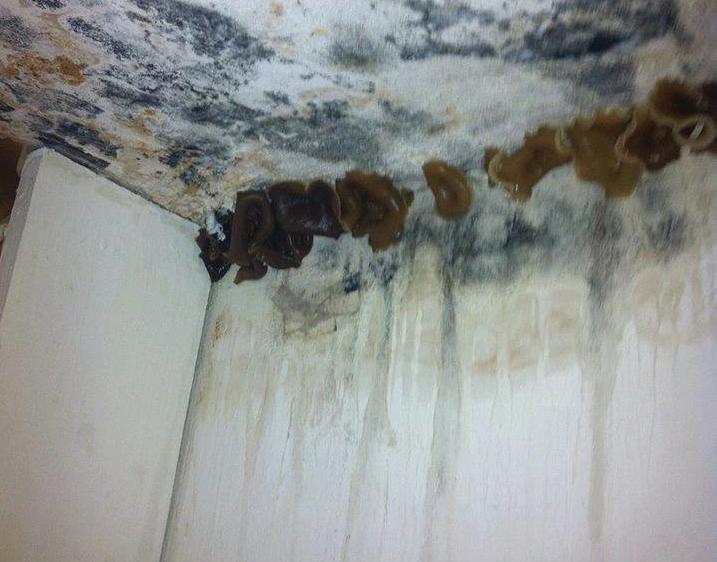

Responses to Freedom of Information requests have revealed that Cardiff University is one of only 4 universities which recognises a qualification from creationist schools teaching that the Loch Ness monster disproves evolution and electricity can be generated from snow.
e International Certificate of Christian Education, which is taught in about 50 private Christian schools in the UK, is treated ‘in the same way as A-level grades’, despite not being recognised by qualifications authority, Ofqual.
e curriculum is based on the Accelerated Christian Education (ACE) programme, which describes its ideology as ‘Christian fundamentalist’ and is taught partially using evangelical US textbooks.
e textbooks teach students that the Loch Ness monster pro-
vides evidence against evolution, stating that it is ‘astonishing’ that ‘many evolutionists theorize that fish evolved into amphibians and amphibians into reptiles.’
‘ is gradual change from fish to reptiles has no scientific basis. No transitional fossils have been or ever will be discovered because God created each type of fish, amphibian, and reptile as separate, unique animals.’
ACE has been heavily criticised in the media for ‘mis-selling their qualifications’ and teaching ‘nonsense obscured with long words’ as science.
Another example cited by e Guardian is taken from ACE’s Science 1087, a book aimed at students in year 9, which suggests it is possible to generate electricity from snow, thus ‘eliminating the need for costly, heavy, and complex equip-
ment now needed to generate electricity.’
A Cardiff University Spokesperson defended the decision to accept students with the ICCE qualification, stating that, ‘Cardiff University is committed to promoting equality and diversity in all of its practice and activities, including those relating to student recruitment, selection and admission.’
Adding: ‘ e University aims to establish an inclusive culture which welcomes, and ensures equality of opportunity for, applicants of all ages, ethnicities, disabilities, family structures, genders, nationalities, sexual orientations, races, religious or philosophic beliefs, and socioeconomic backgrounds.’
e National Recognition Information Centre (NARIC), which advises universities and employers on lesser-known qualifications,
stated in their 2011 assessment that the ICCE General Certificate can be considered comparable to Cambridge International Examinations (CIE) O levels, whilst the Advanced Certificate can be considered comparable to CIE A levels.
In accordance with this, Cardiff University ‘welcomes applications from those offering alternative qualifications.’
Only a small number of students have been accepted into the University with the ICCE qualification. and it is unknown whether any students with ICCE qualifications are enrolled on science-based degrees.
When questioned, a Cardiff University spokesperson stated that they ‘could not comment on whether [the ICCE qualification] was used as part of the decision making process’ in the acceptance of these students.
The International Certificate of Christian Education[...] is treated ‘in the same way as A-level grades’, despite not being recognised by qualifications authority, Ofqual.
Georgia Hamer
This year the Cardiff Student Union main elections are due to take place in the final week of February, almost a month earlier than last year.
Elliot Howells, SU President, confirmed that this decision to push the elections forward has come as a result of feedback from students who stated that ‘they wanted elections to be earlier so that they don’t clash with things such as dissertation deadlines.’
e scheduling of the elections has always been a controversial subject. In 2013 voting was opened in week six of the second semester, coinciding with reading week – a period when many students had returned home.
e Union defended the decision with similar reasoning, stating that more canidates were likely to run if the elections were held further from essay and dissertation deadlines. Although students were still able
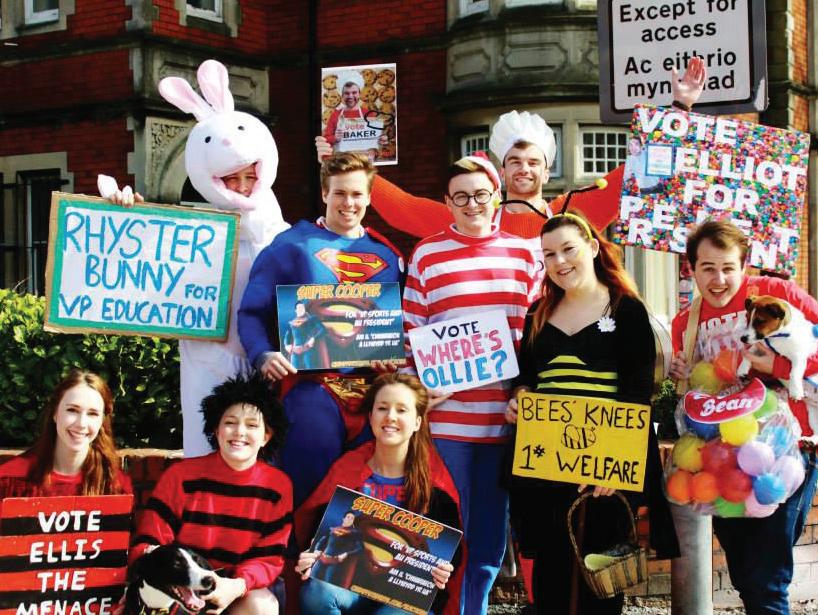
to vote online from home, it was argued that fewer would be aware of the elections and the candidates standing.
With this in mind, Howells has stated that the Union is ‘committing to week five of semester two every year from now on.’
Nominations for the elections will open on Friday 28th November 2014 and close on ursday 5th February 2015 at 12pm.
e positions available in the main elections include seven fulltime officer positions and nine parttime officer positions.
Full-time positions are taken up from 16th June until June the following year. Students running for these positions are required to take a year out during their time in office, unless they are graduating the same year.
Part-time positions are taken up in the beginning of July for the duration of the following academic year and are carried out alongside students’ studies.
All Cardiff students are eligible to stand in the elections.
For more information on the Cardiff student elections visit: http://www.cardiff students.com/ your-voice/elections/
Students wanted elections to be earlier so that they don’t clash with things such as dissertation deadlines.
Georgia Hamer
The Cardiff student By Elections took place last week and votes were up 19% on last years figures.
is year 96 students, all of whom were featured in last weeks Gair Rhydd, ran for 48 positions.
A staggering 47 students ran for 20 positions on the Student Senate22 more than the previous year.
e Student Senate is a student body which holds a level of authority within the Union - responsible for creating and reviewing Union polices.
Voting opened at 9am on Monday 13th October and a ‘Meet the Candidates’ event was held in Y Plas later that evening to give students an opportunity to discuss issues with candidates.
Students were able to vote online up until 12pm on ursday 16th October - six hours before the results were announced.
A ‘transferable voting system’ was used, allowing voters to list candidates in order of preference.
In order to be successful canidates were required to recieve 50% of the total number of votes plus 1. Any canidate who did not recieve enough support to win a seat had their votes transferred to others according to voter’s next preferences.
International Students’ Officer
Postgraduate Students’ Officer
Scrutiny Committee
Megan Jevin
Ollie Wannell
Claire Wisener
Elias Benabbas
Farhan Zubair
Hannah Sterritt
Hina Sadh
Student Senator
NUS National Conference Delegates
NUS Wales Delegates
Alice Newton
Claire Wisenter
Darian Okakpu
Emily Gould
Emmal Longhurst-Gent
Emma Rengasamy
Farhan Zubair
Harriet-Rose Amery
Harry Thompson
Zunaira Javed
Ammaar Rahim
Elliot Howells
Jake Smith
Kate Delaney
Aimee Bray
Alyza Tabor
Elliot Howells
Jake Smith
Laura Knight
Luke Fletcher
Nadeem Pervaiz
Olivier van den Bent-Kelly
Jake Smith
Joshua Green
Kate Delaney
Lowri Pritchard
Luke Brett
Madhura Kanade
Olivier van den Bent-Kelly
Rosie Little
Tim Nagle
Laura Carter
Leah Hibbs
Megan Belcher
Ollie Wannell
Ollie Wannell
Rachael Melhuish
Steffan Bryn Jones
This year 96 students, all of whom were featured in last weeks Gair Rhydd, ran for 48 positions.

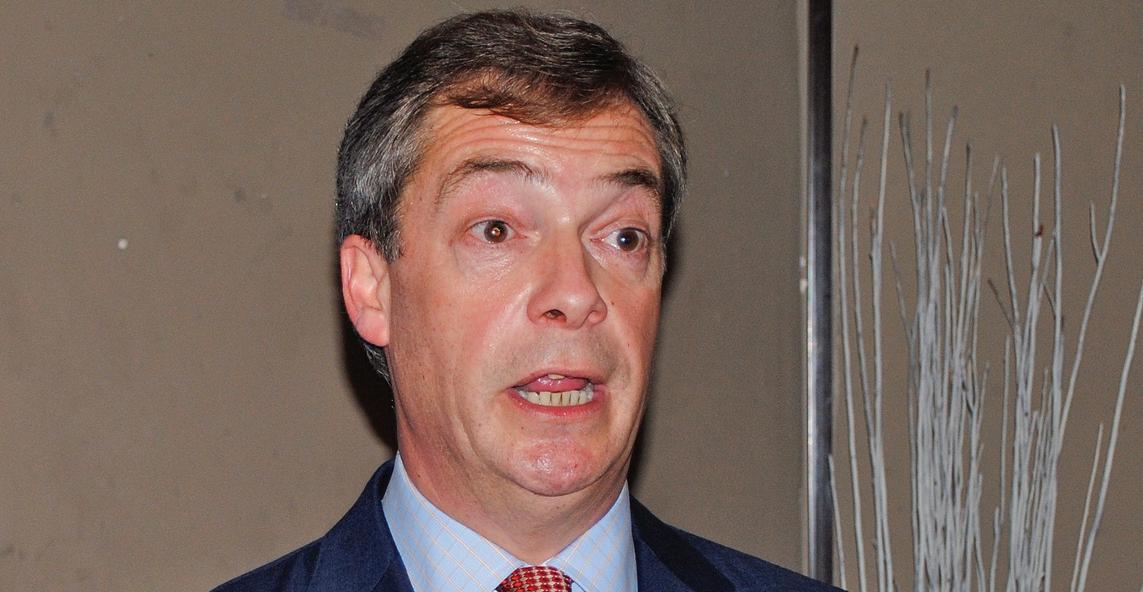
The rise of UKIP over the past four years has created the greatest administrative earthquake British politics has witnessed in modern history. Their charismatic leader, matter-of-fact policies and ever increasing faithful followers have offered a tired, dated, and, some would argue, broken, British system, society and its citizens, a taste of something new. So it’s no wonder the ‘Farage entourage’ now want their share of the limelight.
We don’t all have to be UKIP and Farage enthusiasts to be in support of including them in televised election debates (trust me, I am about as antiUKIP as they are anti-immigration), but it all boils down to the fact that it’s the most democratic thing to do. After their recent success in the Clacton-on-Sea by-election, where the party gained their first ever MP, the voice of an ever increasing majority cannot be denied.
The recent tale in the UKIP chronicles of their by-election success shows that although a minority, they hold an interest for the people who voted them in, the most basic evidence of democracy. Therefore, denying them a place on the big stage, alongside the very parties who are losing voters as quickly as UKIP is gaining them, would undermine the political agency of the British people who conscientiously voted UKIP. But most importantly it would also be the most basic breach of democracy.
By not allowing UKIP to partake, Westminster is maintaining the cosy, three party status quo, the very archaic system that got UKIP on the road to popularity in the first place remains. A wave of minority party presence educates voters and encourages a greater diversity of debate and
potential policies adopted in government. This idea is nowhere more present than in the pressure for Labour, Lib-Dems and the Tories to address the issue of immigration since UKIP bulldozed onto the scene with it four short years ago. Who knows, because of its popularity when broadcasted on the TV debates, Cameron might be pressured to adopt the Green Party’s policy to tax the richest 1%.... Well, we can dream. This process of broader political attention such as the TV debates, no matter the party, will only ever end in a more democratic, diverse and relatable Government structure.
The most significant reason that UKIP should be allowed to partake in the debates, however, is because the television exposure that they so desperately crave may be as equally damaging to them as beneficial. The majority of the party’s support stems from their outsider stance, freshfaced brand, radical and to-the-point solutions to some of Britain’s most topical and controversial problems. This unrefined and arguably undeveloped presence - explicitly displayed in the fumbling racist comments made by their representatives, and most hilariously, the inconsistency of Farage’s anti-European attitude when he’s married to a German - could crumble when placed alongside the parties whose political reputations have centuries of experience. A national event such as the televised election debates would be a test of their political stamina. Their foundations would be shaken, finally proving whether ‘Farage fever’ is anything more than a surrogate political movement, or a serious contender in the race. And what a race it could prove to be.
In what some people are referring to as a historic moment, UKIP have won their first seat in parliament in the Clacton-onSea by-election. With it comes a tide of hysteria and calls, mostly from Farage, for them to be given a greater platform to express their views and to tell the public what the party stands for. For me, this is an irritating irony. Across all media outlets, UKIP repeatedly saturates coverage space. Known more for their controversies, inner-party atrocities and political mishaps, UKIP embody most of what is wrong with British Political Broadcasting or the implications of it. We cover what it is entertaining - not what matters.
The 2010 general election saw a pivotal moment in politics, with debates between the three largest parties televised for the first time. Calls have now come from the UKIP camp to include them in the series of debates before the 2015 election. Despite the media frenzy and UKIP’s smug attitude at their success in the European Elections earlier this year, it doesn’t change the fact they only have one seat in parliament. The British political landscape may be changing, but gaining one seat through an MP defecting does not mean UKIP can simply muscle in to be on the televised debates.
Political parties with more seats in parliament than UKIP have not been given the opportunity to join the televised political debates. To put this in perspective, Welsh party Plaid Cymru have three seats in parliament. The Green Party has one seat. The decision to include UKIP and exclude those parties that have a
position of power in Westminster is bizarre, confusing and simply unfair. At the moment, to offer a platform to UKIP would be disproportionate and misrepresentative of the balance of political power. If UKIP are to be included in the debates then other minority parties must also be present.
UKIP have deservedly gained a reputation as a political party with a set of extreme views. They cleverly bury these views with a variety of appealing elements within their manifesto that appeal to broad populations of voters, even students. They include scrapping tuition fees for maths, engineering and medicine students. However they are also associated with misogynistic, homophobic, racist and bigoted viewpoints that are offensive to many.
These extreme views were seen during an interview between James O’Brien and Nigel Farage live on LBC. Farage expressed exceptionally offensive and xenophobic views on immigration. Farage’s spin doctor Patrick O’Flynn erupted into the studio to try and prevent any further damage and failing on Farage’s behalf to conceal his sinister underlying values, often professionally masqueraded.
I’m a passionate advocate of free speech and allowing those in parliament to have a platform to voice their policies, opinions and promises. However when you take the disproportionate power circumstances and the often hurtful and damaging views of representatives of UKIP, it seems impossible to see any benefit of positive gain from allowing UKIP into televised political debate.
tweet us @gairrhyddop email us opinion@gairrhydd.com or visit us online at gairrhydd.com/opinion
The capital has become steadily more elitist to those looking for work experience from outside it
Food - £80. Travel - £80. Socialising with colleagues - £60. That’s roughly how much it cost me to do my two week internship in London in April, and I was lucky enough, thanks to some friends who put me up in their university halls, not to have to pay for accommodation there.
A recent study found that London is now officially the most expensive city to live and work in in the world, even coming above cities like Hong Kong for cost of living. A report published by research group The Building and Social Housing Foundation found that 93 per cent of new housing benefit claims made between January 2010 and December 2011 were made by households containing at least one employed adult, and with 40 per cent of London families reliant on housing benefits, these statistics suggest that even paid workers in London struggle to live there.
At the same time, unpaid internships are becoming increasingly popular amongst big companies, meaning that hundreds of graduates are having to live and work in the big city for weeks or months with no
income in the hopes of being able to eventually secure a job there.
Ask any university careers advisor or recent graduate and they’ll probably tell you that work experience is just as important as your grades when it comes to finding a job after university. 80 per cent of the UK’s graduate jobs are now located in London, where 60 per cent of the workforce were graduates in November 2013. With such a huge proportion of graduate jobs and top employers based in London, many graduates understandably set their sights on moving there after they finish university. But with the job market remaining ever competitive and more young people going to university than ever before, work experience is one way for employers to narrow down the number of applicants for jobs, and most of the short-term work experience available is either completely unpaid or provides only limited expenses which barely cover the tube fare let alone living costs (I came across one which paid minimum wage, but only after you’d completed the placement, which is obviously of little help while you’re working).
As ISIS continue their crusade to establish a permanent territory, the list of atrocities that they have committed is increasing. Worldwide they have gained a reputation for brutality and an attitude that shows no fear of repercussions.
On the same day as the most recent Siege on the city of Kobanê began, Kurdish student and NUS member Roza Salih along with other NUS National Executive Council members filed a motion acknowledging the suffering of the Iraqi people under the regime of Saddam Hussein, the aftermath of the 2003 Iraq war and in the past few months, the rise of ISIS. e motion also condemned the use of rape and other forms of sexual violence against women in ISIS-held areas.
ose backing the motion called for the student movement to campaign alongside Iraqi student, trade unionist, secularist and women’s organisations. e motion made it very clear that while they strongly
condemned the actions of ISIS they were “expressing no confidence or trust in the US military intervention”.
Controversially, this motion was opposed by the NUS Black Students Officer, Malia Bouattia, who claimed that the motion was ‘Islamophobic’ and ‘pro-US intervention’. According to Daniel Cooper, an elected member of the NUS NEC who backed the motion, the NUS President Toni Pearce moved the debate on after a single round of speeches with no opportunity to respond to these points.
A large number of NEC members either voted against it or abstained causing the motion to fail. What the NUS executive committee have done has resulted in a complete failure in proving that students collectively are against warfare enacted in this way and against all terrorism. The shock it has caused across social media is justified. It seems inexplicable that the NUS chooses to hold a stance on the Israeli-Palestinian conflict that boycotts Israel, but fails to support those in danger from an ac-
Of course one of the major benefits of a work experience placement is the opportunity to network with people already employed in the industry or company you’re hoping to work in after you graduate, making it arguably just as essential to keep money aside for post-work drinks as it is to pay for things like food and travel. Socialising with colleagues might be the difference that helps you make a good and memorable impression on people who you might hope to work with again in the future. This “essential” would be a major financial drain for any unemployed person, let alone an unemployed person living in the most expensive city in the world, and yet secures no guarantee of a prospect of postgraduate employment. None of this is really a problem if you’re from London or are able to come up with enough money to pay for the notoriously expensive accommodation there during the internship, but it puts young people from other areas of the country at a massive disadvantage. Coming from the rural heart of Devon, I never would have been able to consider a work placement in London without the
help of my friends. Increasingly, it seems that getting a top job in London is becoming largely a privilege of the rich, tenacious, and native Londoners with even a place at a hostel costing around £350 for two weeks.
With all this in mind, it seems there should be provisions in place for students from outside of London who could never afford to finance themselves through a work placement there. They would have the opportunity to undertake a paid placement or one which provides accommodation and food. As a country we’ve become extremely London-centric; the majority of our media is based there, along with our government and banks. It’s not only unfair that the opportunities for many students to work in those industries are limited. It’s also worrying, because it means that some of the most important institutions in our country are not as diverse and representative as they should be. It’s time to bring an end to this emerging cycle of ‘London for the Londoners’ and start helping students to gain the equal employment opportunities that they should already have.
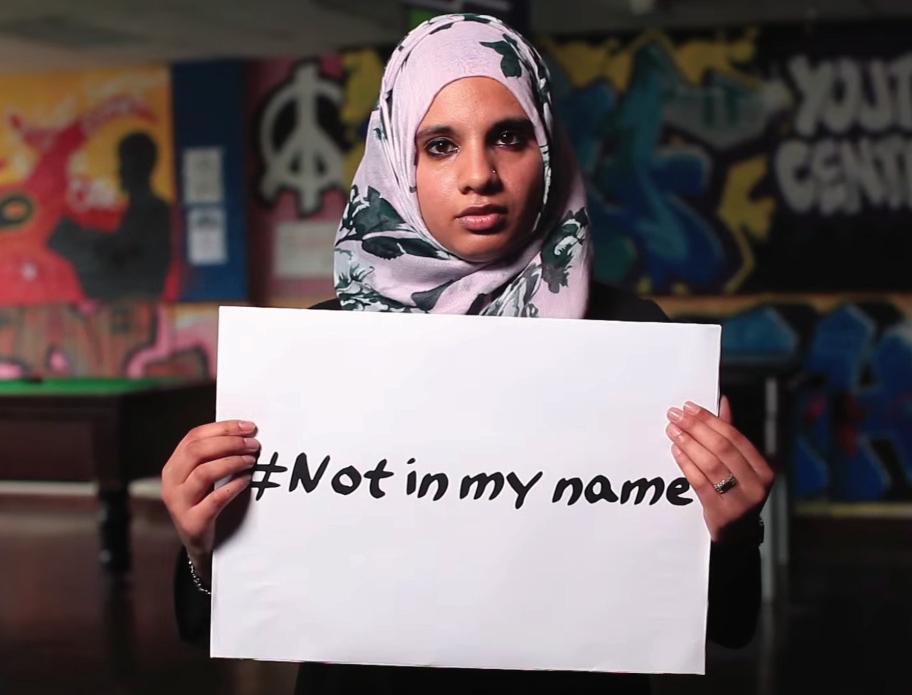
tive terrorist organisation. Far from being reflective of the students’ opinion it is supposed to represent, NUS are doing the complete opposite. Students and young British muslims have united by promoting on social media the hashtag ‘Not in my Name’, which they are doing to express their views against ISIS. The publicity this campaign has generated is clear evidence that students want solidarity against this group. So why aren’t NUS listening to this overwhelming majority?
The intellectual gymnastics pulled in order to justify a choice to refuse
to condemn the most brutal and vicious non-white Muslims whilst showing indifference for secular and democratic non-white Muslims who simply want to enjoy the same freedoms we take for granted is astonishing. The National Executive Council decision last month brings shame to the NUS. Members of the NEC may boast of their stance against a bigoted motion, but in reality they have in one sweep, turned their backs on those progressives brave enough to stand against the forces of reaction in all their forms.
“
London is now officially the most expensive city to live and work in in the world.
Jamie McKay Olivier van den Bent-Kelly Pictured: A still from the #NotInMyName campaign videoAs you read this article, the privacy of a human being is most likely being violated. We have never been more vulnerable or susceptible to exploitation. There are criminals in this world who seem to exist for the sole purpose of hacking into our personal websites, steal our details and use our identities.
Unwittingly, we continue to expose our entire profiles, our personalities, our photos on social media, on our phones and on various online storage sites, such as Apple’s iCloud. As it becomes more and more apparent that our generation is defined by technology and media, we are still under the illusion that there is an invisible safety net protecting us from these dangers.
These people decide to put themselves in the public eye but that doesn’t mean the same for their bodies.
The recent controversy in which certain, nude images, of predominantly female celebrities, such as Jennifer Lawrence, were hacked from Apple’s iCloud. These nude photos quickly diffused around the internet via popular social media sites, including Twitter in what has come to be known as a ‘leak.’ In a recent turn of events, Snapchat, the social messaging app that many teenagers and adults have down-
loaded on their phone, has also been called into question. It seems that there are other third party websites that allow you to store pictures sent via Snapchat. This is a flagrant violation to the purpose of the app in which photos are immediately sent to another trusted person for a certain amount of time, before being deleted forever. However, the pictures remain, stored onto some third party server, waiting to be exploited by a gleeful hacker, who seizes it all.
Most recently, the victim count has risen to also include the British model Daisy Lowe and her previous boyfriend, Doctor Who star, Matt Smith. Allegedly, the ex-couple were taking photos in the privacy of a hotel bathroom for their own personal use. Other people may have a judgmental manner to this situation, but what right do they have? These were supposed to images for personal, intimate use. They did not ever expect that these celebrities’ photos would resurface and be spread all over the internet like emoticons. Yet, one might argue, the inevitable happened: the pictures were somehow recalled and placed into the public spectrum to be consumed and retweeted thou-
sands of times.
However, to say there has been a public outcry, would be an understatement. People all over the world have been struggling to make their views known in as little as 140 characters. Public reaction to this scandal, or as Jennifer Lawrence accurately termed it, ‘sex crime’, has ranged from disbelief to disgust, with many famous people publically denouncing it as an invasion of their right to privacy. Matt Smith, however, is only the second male celebrity to be targeted which fundamentally calls into question our values as a society if women are always the ones to be demeaned, exposed and have intimate pictures published against their consent. These people decide to put themselves in the public eye but that doesn’t mean the same for their bodies. They are put into the limelight for a reason and often use their influence to be positive role models. By abusing their bodies in this manner, we are also stripping away their power to be progressive.
Yet, as a society, we still find ourselves in the awkward position where there are people who look at these images, actively perpetrating the ini-
tial crime of the hacker as well as participating in the debasement of a body that does not belong to them. As long as there are people looking, there will always be hackers in the world. There will still be people who condescendingly regard this as the natural series of events for people who take nude pictures in the first place (I’m looking at you, Ricky Gervais).
Of course, no one can lie and say that this is a unique event that will not ever happen again because it is obvious that it will. It will always be latched onto by the media hoping to make some money by degrading another human being. If it is happening right now, it will still be happening next week and next year until people eventually come to the realisation that they should not upload personal photos onto a storage site and just delete them instead. The truth is that the strength of your password does not really matter, in spite of what Apple has been claiming. The more time that goes by, the stronger the hacker will get. It is a scary thought that no-one should have to think, but the time has come to discuss it, once and for all.
It is perverse of universities that they have investments in fossil fuel companies which endanger our future and the future of the planet. Universities in the UK have between £1.9bn and £5.2bn invested in an unethical industry – up to £2083 invested for every student.
This is set to change as this month Glasgow University became the first university in Europe to divest from fossil fuels, after campaigning by Glasgow students. This is part of a wider global movement that has seen divestment by all kinds of institutions from the British Medical Association (on health grounds) to the World Council of Churches. Since the campaign started in November 2013 at least 181 organisations and towns have divested from fossil fuels; including 13 American universities. Even the Rockefeller Brothers Foundation has divested, despite the Rockefeller fortune being made from oil.
The People and Planet society at Cardiff have joined the Fossil Free campaign and are investigating links between Cardiff University and the fossil fuel industry. They hope to persuade the university to invest more in renewable energy. People and Planet found that Cardiff receives £1.5 million worth of research funding from oil and gas companies. It came 85th out of 143 universities in the People and Planet Green League: we beat Oxford (132nd) and lost to Cardiff Metropolitan (23rd); Manchester Metropolitan topped the list as the greenest University.
In 2009 Cardiff students campaigned successfully for the university to stop investing in the arms industry on the grounds that it was wrong for the university to have a financial interest in wars and conflict. As it stands the fossil fuel industry plans to extract 5 times as much carbon as would be needed to warm the planet more than 2 degrees, a “safe” level of warming. Extreme weather events are already 5 times more common than in the 1970s. Scientists have concluded that global warming was at least partly responsible for 9 of the 16 most extreme weather events in 2013 including the Australian heatwave, which broke temperature records and caused wildfires and the floods and landslides which killed 5,800 people in India. It is wrong for universities to have a financial interest in this destruction of the planet just as it is wrong for them to have a financial interest in war.
Fossil fuels were always a safe investment but that may no longer be the case: economists are warning of a “carbon bubble”. Since 80% of fossil fuel reserves can’t be burned without causing a climate disaster, a deal which would genuinely tackle the threat of climate change would massively devalue carbon reserves. Investing in fossil fuels is a bet against the future of the planet.
Universities withdrawing £5.2bn of investment from the £2.9 trillion industry may not seem like something that would make a massive difference but an Oxford University study shows that it would have a real reputational damage for fossil fuel

companies and the large financial impact on coal, which is thought to be the most environmentally damaging of all the fossil fuels. It is important not to let fossil fuel companies get away with “greenwashing”: unjustifiably claiming green credentials. BP rebranded itself as Beyond Petroleum in an attempt to appear green but withdrew from solar power in 2011 and wind power in 2013.
The money divested can be reinvested in the clean energy sector which, as it stands, is only a £138bn sector worth less than the top 4 oil and gas companies individually. Renewables are already providing 25 percent of electricity in Germany, thanks in part to community groups who have voted to take control of their own power grid and provide their own power using renewables. There’s no reason for us not to try and do the same in our country.
There have been times where global
warming looked set to bring out the worst in people. During this year’s floods 230,000 people signed a Daily Mail petition to divert foreign aid to deal with flooding in the UK. What can we expect of people when flooding becomes even more common and extreme weather events creates more refugees as more of the planet becomes uninhabitable?
That is why Fossil Free movements are so encouraging. Divestment is an important part of a flourishing green movement that aims at a positive restructuring of society which puts people before profit, will provide green jobs and recognises the plight of the global poor who are the worst effected by a disaster they did not cause.
It has renewed people’s faith that they are not at the mercy of corporations. The Fossil Free movement aims for a positive future rather than simply an avoidance of catastrophe.
It is wrong for universities to have a financial interest in this destruction of the planet just as it is wrong for them to have a financial interest in war.






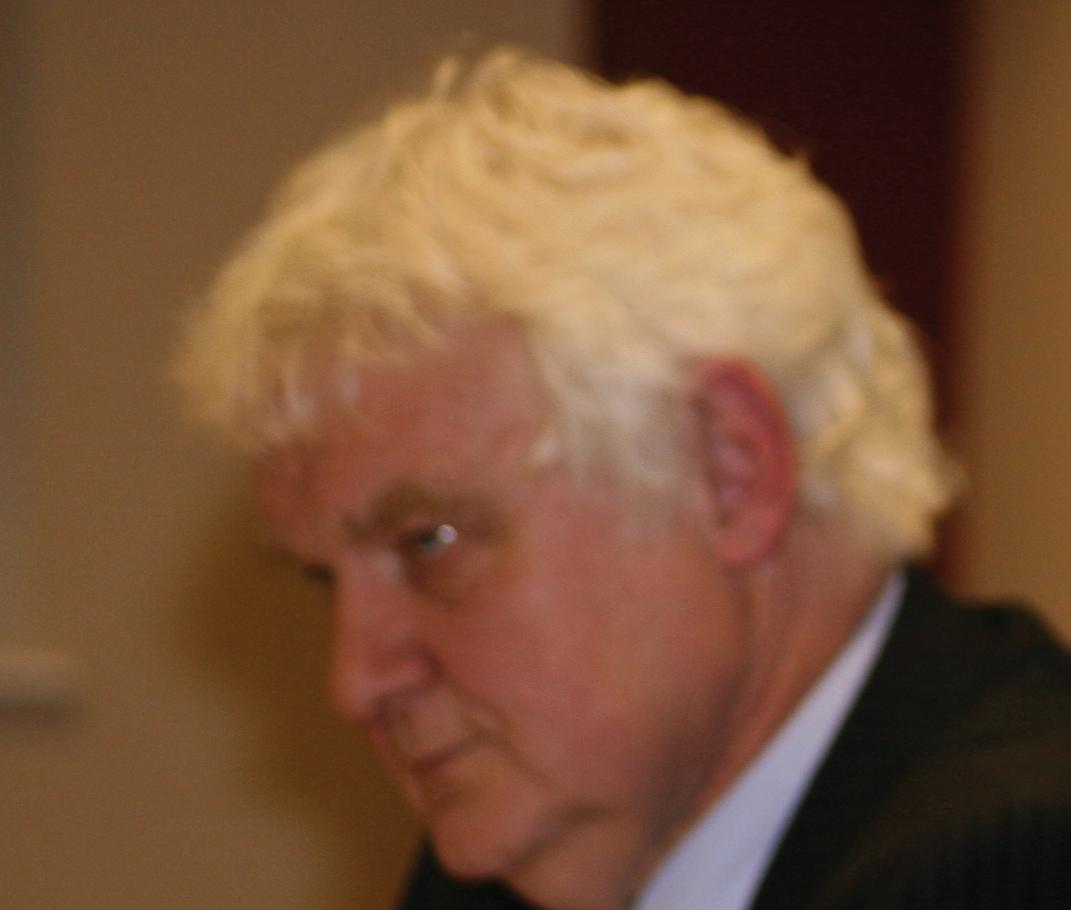
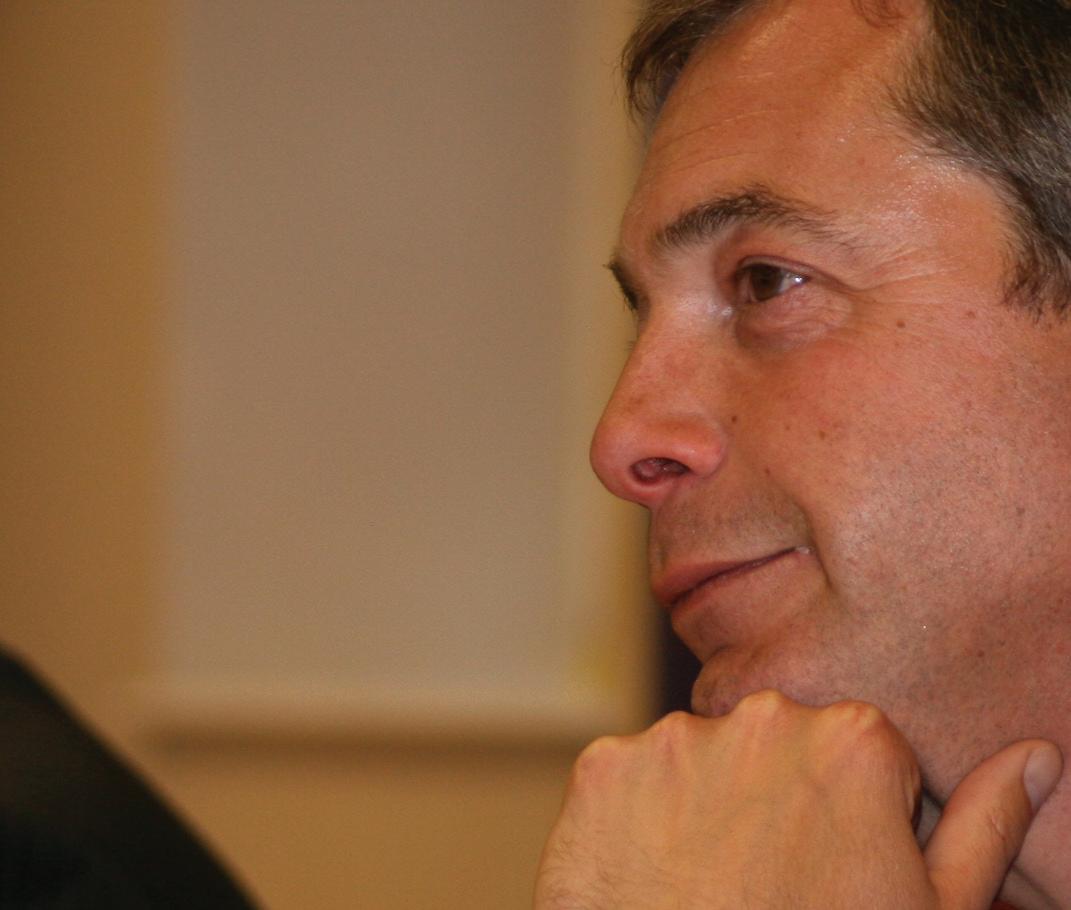

Iwanted to avoid writing about politics. I really did. There is nothing in this world that so utterly enrages me than being stuck talking to a politics bore. And they’re so hard to avoid. They’re everywhere, hidden in plain sight. You’ll be sitting in a pub with friends and one of their mates comes over and you mention how the beer is a little pricey and then BAM. They’ll talk about how beer duty was actually cut by a penny at the last budget and why you’re actually wrong about everything you’ve ever known, all whilst you’ll be thinking about the best method of lodging a fork in their brain.
stand and talk about absolutely everything while saying absolutely nothing. People cannot cast their vote based on policy when policies are not made clear.
You can’t be a casual politics fan in the way that you can be a casual football fan.
This isn’t to say politics isn’t important. I think about political issues every day, in one way or another. What discourages me from engaging in a public discourse about politics is that there’s ALWAYS somebody who knows something you don’t. For some people, to have an opinion on absolutely every issue is a necessity. You don’t care about whether smoking should be banned in parks? YOU SHEEP, THINK FOR YOURSELF MAN. You can’t be a casual politics fan in the way that you can be a casual football fan. A lot of the problem is due to the way the media covers and reports politics. The combination of PR savvy politicians and partisan newspapers mean that now more than ever, politics is more and more opaque; genuine policy information and debate is becoming harder to find. Instead we are given rhetoric and spectacle, party leaders will
The consequences of turning politics into a spectacle? Nigel Farage has been invited to take part in the televised debates in the run-up to the General Election. And this is the reason I’ve chosen to engage in SERIOUS POLITICAL DISCUSSION rather than write a column called “47 Clouds That Look Like Animals”. Everyone’s upset about UKIP’s presence in the debates. David Cameron now has to share the stage with another person who’s not particularly friendly with the poor or ethnic minorities. Ed Miliband and Nick Clegg will be made to look even more boring, a feat so difficult that it probably surpasses the building of the pyramids in terms of human achievement.
And of course, there were the omissions of the Green Party, Respect, Plaid Cymru, the SNP and the four parties representing Northern Ireland who’ll be watching the debate from the comfort of their sofa.
It’s the exclusion of the minority parties that seems to have generated the controversy. The Greens are particularly outraged, threatening legal action. But can they really be surprised? They’re generally a party that keeps a low profile, preferring to focus their efforts on actual change, as opposed to the “shout loud, shout lots” approach offered by UKIP. The result of this is that everybody knows about Farage, but Green Party
Leader Natalie Bennett could walk through the street in total anonymity. It’s becoming more and more apparent that the last thing those with any political ambition should talk about is politics.
Farage is many things, but he’s no idiot. In a time of widespread discontent at the state of the political class, he has cast himself in the role of maverick and is reaping the rewards. It doesn’t appear to matter that he’s the privately educated leader of a party predominantly made up of white middle-aged men, or that his policies are even further to the right of the Conservatives, or even that his party members have been in embroiled in scandal after scandal. As long as he continues to play to the media, acting as the man of the people who plays by his own rules, the media will provide him with the pedestal he so desperately needs and craves.
There’s little doubt that Farage’s rise to prominence has been greatly facilitated by the tabloids in particular. The British tabloid press thrive when there’s even the slightest hint of controversy and/or scandal; with UKIP they’ve got everything they could ever want. A party full of homophobes, global-warming sceptics, religious bigots and other colourful characters? A leader shouting about shaking up the establishment? MPs from the ruling party publically defecting to the ruling party? This is the stuff of tabloid gold. UKIP have taken the phrase “any publicity is good publicity” and used it as their media mantra. One of our members
thinks compulsory abortion should be considered for fetuses with Down’s Syndrome? Think of the savings on the NHS! Another said we shouldn’t send aid to “bongo-bongo land”? Good on him, I’m sure that’ll go down well in the home counties! Farage has branded UKIP as a party that is ‘not afraid to tell it like it is’, which really translates as, “I’m going to say this incredibly offensive thing, and somewhere there will be a group of people that agree with me and support me for attempting to justify their insane viewpoints.”
The hope in all this is that even if other minority parties aren’t included, UKIP’s invitation to the debates will challenge the structure of the three-party system. Regardless of their politics, the more access the electorate have to different political viewpoints, the better our democracy will function. The three-party system has left the public disenchanted and disconnected with politicians, which is one of the reasons UKIP have risen to prominence in the first place.
Farage is the perfect embodiment of the state of modern politics. He’ll yell at the top of his voice from a podium, only to turn on the charm ten minutes later over a pint of bitter, all style and no substance. Politics is now little more than a reality TV show, and Farage is the man of the moment. When all is considered, the surprise isn’t that Farage is there on stage in the spotlight. It’s that others, with not a personality between them, were invited as well.
Nigel Farage with Members of the University of York Freedom Association Society (Photograph: e Freedom Society)
Everybody knows about Farage, but Green Party Leader Natalie Bennett could walk through the street in total anonymity.
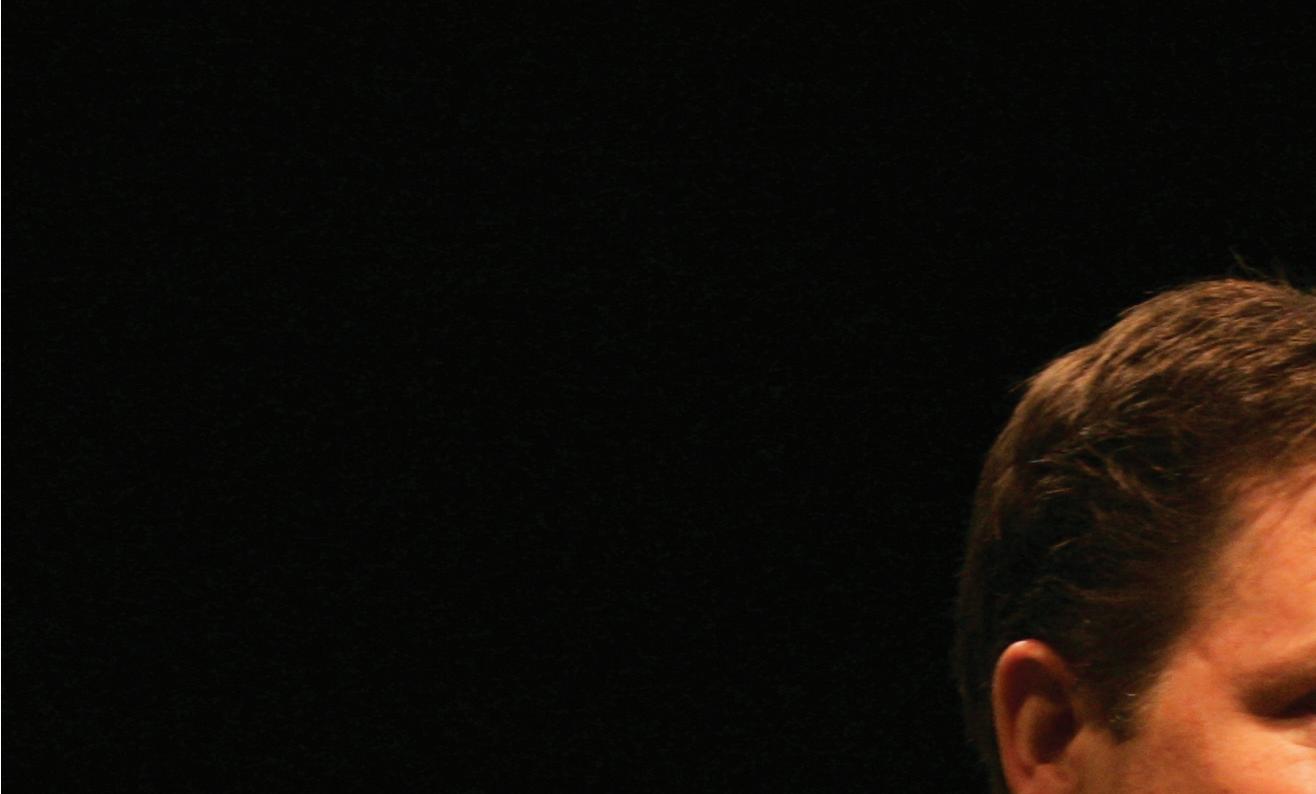
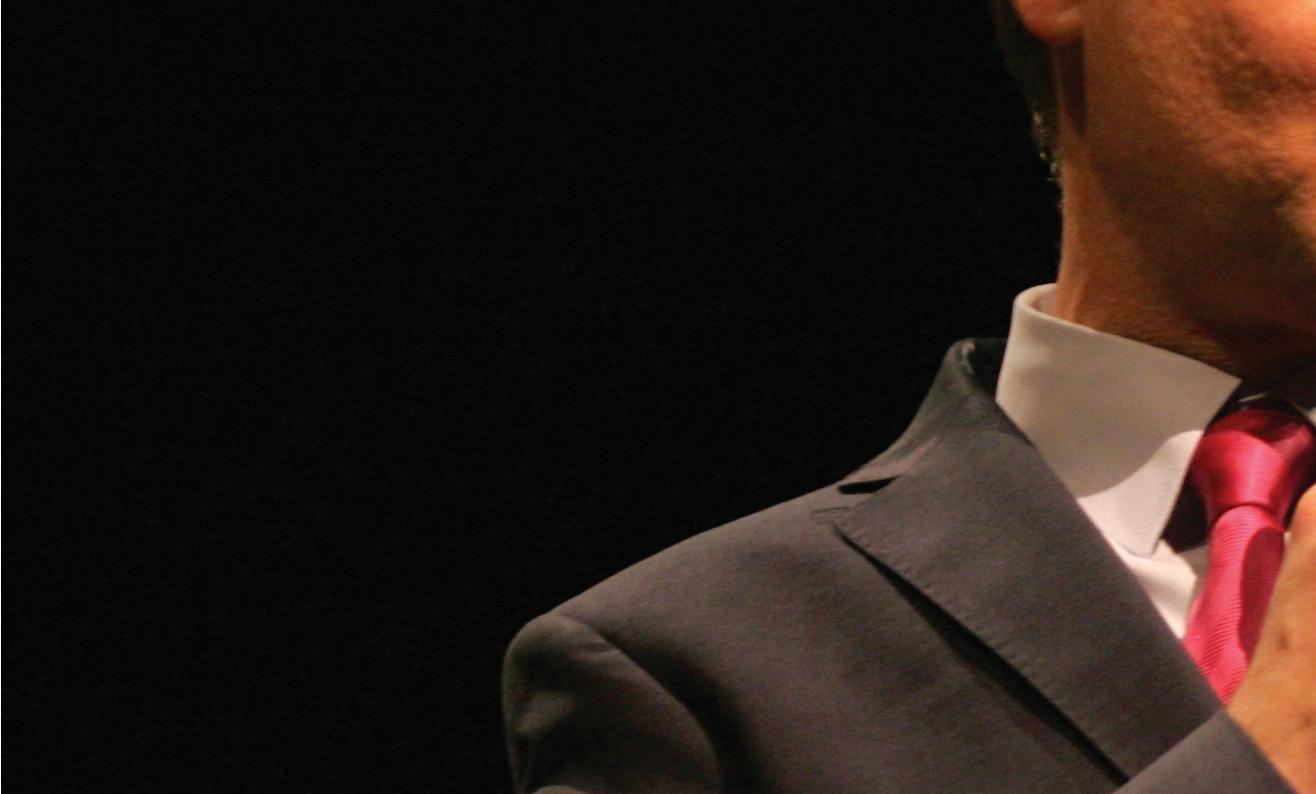

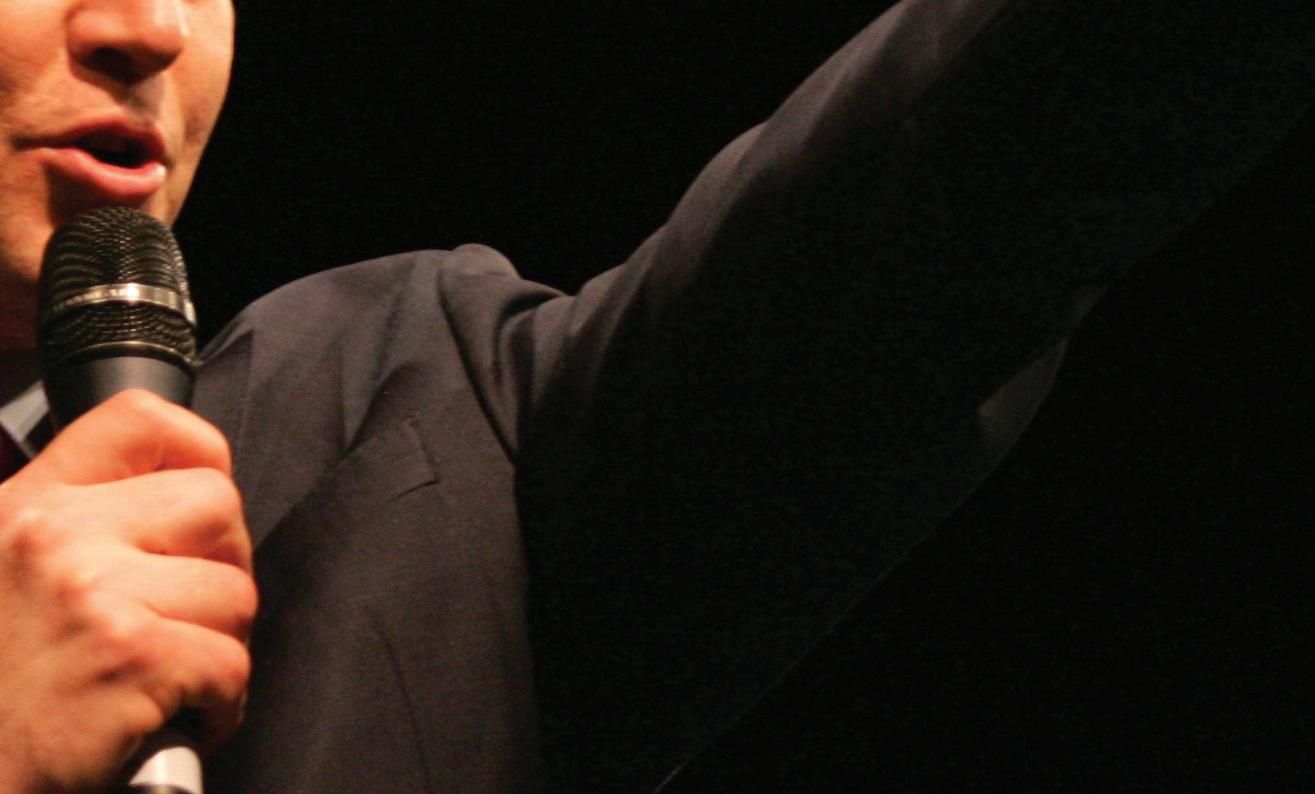


Last week, a Gair Rhydd exclusive survey revealed some alarming figures about drug use at Cardiff University. It was claimed that over 60% of Cardiff University students had taken illegal drugs, and as many as 29% sold drugs or put someone in contact with someone who does. It is therefore obvious that UK government policy and the current ‘war on drugs’ is failing, especially in student cities such as Cardiff, with many calling for immediate reform. is issue therefore will be a hot topic for students in the run-up to next year’s election as the Liberal Democrats attempt to recover support.
Nick Clegg has previously criticised the UK’s longstanding drug policy, branding it idiotic and senseless, and blames their coalition partners for blocking their ideas on drug reform.
In a question and answer session at the annual Liberal Democrat party conference earlier this month, Clegg claimed that the national approach to drugs needed a complete overhaul. is is not the first time that Clegg has criticized the country’s drug laws. Echoing comments made
Carwyn Williams
Minister’s
John Griffiths AM was the first to question the First Minister last week, asking Carwyn Jones to ensure that following the Scottish referendum, re-balancing the economy will be on the agenda in talks between the Welsh Assembly Government and the UK Government. Health was predominantly obvious on the agenda for AMs in the Senedd with Andrew RT Davies, the leader of the Welsh Conservatives, firstly bringing up
to the Sun in early August, Clegg claimed that the current approach to narcotics in the UK inappropriately aided criminals in profiting from the vulnerable.
e Lib Dems leader proposes changing the UK drug laws to treat addicts as those in need, rather than as criminals. Jailing individuals for the use of drugs perpetuated the market, he said, as vulnerable individuals who left prison often emerge as criminals or with increased criminal connections.
A quick look at the Lib Dem premanifesto fills this policy out somewhat. ey are pushing ahead with plans to improve treatment for drug users in prison, the decriminalisation of personal drug usage and the creation of “drug courts” to bring addicts back on the “straight and narrow.”
Clegg’s claims come as many nations around the globe begin to probe experimental methods of dealing with drug abuse. In the Netherlands, for example, the aim of the drugs policy is to rehabilitate drug users, increase safety for drug users and prevent public nuisance, rather than criminalize. In the US, cannabis has
the ‘appalling’ waiting times within the NHS, making the case that over a thousand patients had to wait over 24 weeks for diagnostic tests in Cardiff’s Heath Hospital and therefore should be tackled urgently to get these figures down.
The First Minister responded by reminding the minister an extra £425m is being put into the NHS in the draft budget this year to attempt solve that issue amongst other stresses within the Welsh NHS. Mr Davies also brought up
begun to be widely used as a medical treatment and decriminalisation is taking hold across the country, especially in more populated states with a higher proportion of young adults.
Nick Clegg’s party has certainly lost support since the last election, especially with students feeling betrayed by them. Could this therefore be a policy to win back some support from the younger generations?
Although this is certainly a bold approach by the Liberal Democrats and from a party in government, reform is unlikely to take hold any time soon. A recent study showed that a whopping 87% of people thought that the war on drugs had failed. Furthermore, the number of people who supported the decriminalisation of drugs increased from 27% in 2008 to 39%. e current system dates back to 1971, with little reform since then, so it is clear why some are calling for reform of this old, outdated legislation.
Despite this gradual change in public opinion on this matter, both main political parties are not concentrating on the issue like the Liberal Democrats. Labour have remained mainly quiet on the issue
the possibility of an Ebola outbreak in Wales, with Carwyn Jones reassuring the chamber there were extra measures in place including extra equipment and staff training to deal with any incident.
Plaid Cymru leader Leanne Wood quizzed the first minister on the protection of Child Services in Wales, especially in the Valleys, and was frustrated with Mr Jones’ response. The Valleys-born leader reacted to the First Minister’s
of drug reform, focusing primarily on issues such as the cost of living. e Conservatives on the other hand have been accused of being “frightfully conservative” and unwilling to change. ey, according to Nick Clegg, have been consistently blocking Lib Dem attempts at drug reform but should there be coalition talks next year this should be a priority for Nick Clegg to defend.
e Green Party are also alling for reform, stating that the government’s policy is inconsistent. ey urge the government to debate the matter in the House of Commons as early as the end of the month in response to a 135 000 name petition saying the current laws are “not working”. Plaid Cymru also call for “more drug rehabilitation places and programmes” to deal with this issue.
Will this policy be popular enough to enlighten the public and bring British voters back to the Liberal Democrats, and indeed Plaid Cymru? Taking this alongside the revealing Gair Rhydd survey, perhaps this bold stance on drug reform will be enough to help Clegg claw back the support he’s lost during his first term in government.
response stating that protecting a budget is not protecting services, and therefore the services are not protected by the government directly.
The Liberal Democrats leader Kirsty Williams was also unhappy this week with the First Minister’s response to young adults and children’s waiting times to access mental health services saying to Carwyn Jones ‘When will your government achieve it’s goals?’, a question many people are asking.
Government policy is inconsistent and the current laws are not working Green Party

On the 18th September 2014, the Scottish people were asked the question, “Should Scotland be an independent country?” 84.6 % of the Scottish electorate participated in this historic vote. 55.3% voted No and 44.7% voted Yes. After the referendum, the Prime Minister made a statement congratulating the No campaign and paid tribute to the Yes campaign, saying to all those who did vote for independence: “we hear you”.
Thus, on the 19th of September, an independent body called the Smith Commission was set up to facilitate talks on further powers and financial control to be granted to Scotland. Overseen by Lord Smith of Kelvin, matters such as; the Barnett formula, tax control, welfare and spending will be decided in full by November, followed by the new Scotland Bill by January. The Scottish National Party wants a system of devolved power in their own country so that local decisions on matters that affect Scotland will be made locally, providing them with more democratic control.
In their submission to the Smith Commission, they called for full control over fiscal and tax policies from Westminster, as well as powers over other areas including welfare, energy and broadcasting.
The Greens want Scottish parliament to be given more economic powers and further control over most of the welfare system. Under Labour’s plans, the Scottish parliament would be able to raise 40% of its own budget and could increase the higher and additional rates of tax, but not cut them. Labour also wants Scottish parliament to have control over housing benefit and attendance allowance.
The handover of further autonomy on tax and welfare to Scotland was part of the last minute pleas to Scottish people, but the question remains whether the Smith Commission will be able to deliver on this in practise. The Tories want to go further on the handover of tax levying powers than Labour does. They said that Holyrood must be responsible for setting the rates and bands of personal income tax as well as a share of VAT, while the Liberal Democrats said Scotland must raise most of the money it spends. In keeping with the initially proposed timetable, a command paper has been issued to parliament detailing future plans. However, the paper has been criticised for outlining nothing more than that which the three parties had already promised. Notably, there have been some angry reactions to the news of process so far. The
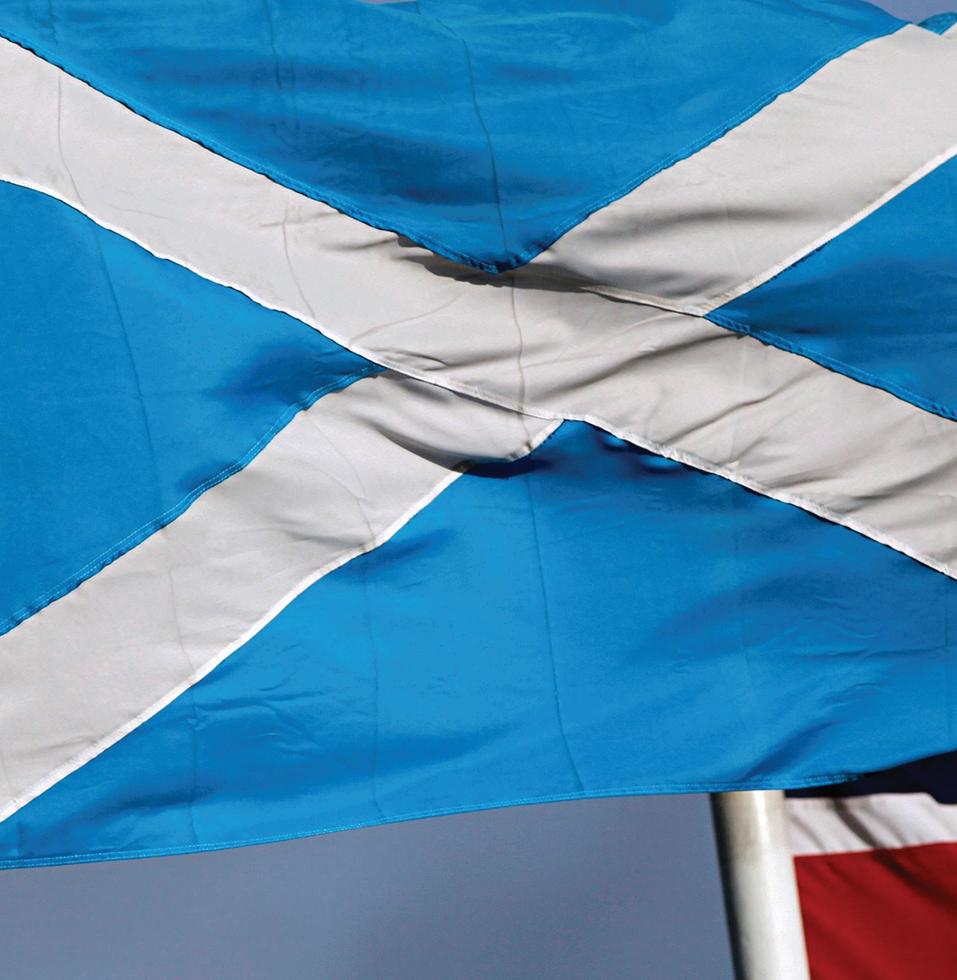


Scottish Greens have denounced the paper as ‘damp squib’ and ‘nothing more than a cut and paste’ without any new information. Alex Salmond has condemned the Scottish devolution debate at Westminster as ‘pathetic’. Despite this, it is important that party politics should be ignored when it comes to these decisions as the most important issue is to make things right for Scotland. Some Scottish MPs have alluded to the different needs of people who voted ‘Yes’ or ‘No’. Mike Crockart, MP for Edinburgh West, asked that Scottish people ‘set aside all differences
and party affiliations’ in order to ‘deliver the will of the Scottish people’. Members of the Scottish Greens have argued that ‘there is a gulf in public expectations which the three parties must close’. The cross-party body, the Smith Commission, must deal with the differences between the Conservatives and Labour on how much power to devolve to Scotland. Ultimately, plans are still underway and such a complex, geopolitical issue needs every party and, more importantly, the opinions of the Scottish people to encompass the decision making on Scotland’s future.
Pictured: e Saltire and the Union Flag. Will further devolution make the Union stronger?
Carwyn Williams
In the wake of the Scottish Referendum results, the debate on devolution in Wales has once again been sparked. In a debate in the House of Commons last week, William Hague, leader of the Commons, said “We must not only meet the vows to Scotland but also deliver a balanced settlement that is better and fairer for England, Wales and Northern Ireland as well”, but what will this mean for Wales?
The leaders of the Welsh political parties made a joint statement calling for a permanent solution to Wales’ under-funding problems as well as extra tax-varying powers for the Assembly. Every party here in Wales supports further devolution, and further powers are on the way.
Currently, the Wales Bill is going through parliament and was discussed in the House of Lords last week. This bill will transfer more financial powers to the Assembly in Cardiff, with landfill tax and stamp duty becoming the Welsh Assembly Government’s responsibility soon. The Assembly may also get partial control over
Income Tax, however there may need to be another referendum asking the people of Wales, possibly before the next Assembly elections in 2016. It seems though after such an iconic vote in Scotland last month, it would be the right thing to do to progress down the devolution road in the rest of the UK. Getting control over Income Tax has this month become far more popular following the announcement by the new Secretary of State for Wales, Stephen Crabb, that the “lock-step” would be removed, a clause that first minister Carwyn Jones said made the power almost utterly useless.
In the House, both Dafydd EllisThomas and Lord Wigley also supported a significant change to devolution in Wales, and that Wales must not be forgotten amongst all the promises to Scotland that ministers have made. They are calling for a “reserved powers model of governance” which would also include further devolution over areas such as policing and criminal justice. Scotland and Northern Ireland are already devolved under this reserved power system, but Wales is
not, and this has been disruptive for the Welsh Assembly Government.
The Welsh Assembly Government have been in the Supreme Court three times in the last three years concerning assembly powers, costing over £300 000, proving the current system is not a viable option for a long-term governing future. Former Attorney General Dominic Grieve agrees with the Plaid Cymru members to an extent, stating about Welsh laws; ‘‘one of the problems we have is that the legislation has been so badly drafted that in fact it is quite unclear what has been devolved and what has been reserved’’, with William Hague agreeing that a reserved power system is finally on the agenda for Wales.
There were also suggestions that a further Welsh devolution bill was on the government’s agenda, to respond to the outcome of the second Silk commission report and the Scottish referendum debate, which could lead to a reserved powers model, as well as calling for more AM’s, to properly scrutinize the Welsh Government effectively. While not much is certain,
political change is happening. David Cameron stated following the Scottish referendum, ‘‘there now needs to be a constitutional change within the United Kingdom’’ and Carwyn Jones calling for a ‘‘new Union mindset’’ for the UK as a whole.
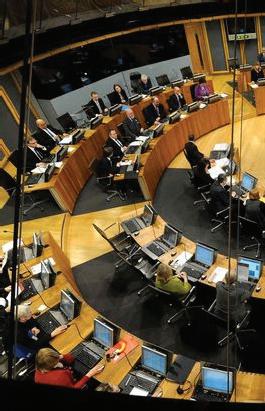
OThe campaign will endure periods of progress and setbacks
bama’s strategy to combat ISIS is under increasingly heavy fire as insurgents continue to expand their territory in Syria and Iraq. Much attention has focused on the Syrian town of Kobane, considered an indicator of the effectiveness of the current USled strategy to contain and ultimately defeat ISIS. US air strikes in conjunction with Kurdish forces on the ground have managed to repel assaults made by the group to take the town, but the fate of Kobane is in the balance. e frequency of air strikes has increased dramatically amid reports that the group is believed to control around half of the town. e situation in Kobane has also caused strife within Turkey. Ankara has been subjected to increasing US pressure to address the crisis unfolding on their border. Turkey has a protracted and bloody history with Kurdish separatists, the Kurdistan Workers’ Party (PKK) and has been reluctant to intervene to aid Kurds affiliated with the group that are now fighting ISIS in Kobane. Despite seeking parliamentary approval to allow for intervention, Turkey’s perceived inaction in response to the ISIS advance and unwillingness to permit Kurdish fighters to cross the border into Syria has enraged the
Kurdish minority, causing deadly clashes with security forces in several Turkish cities. is has prompted retaliatory air strikes by the Turkish government on Kurdish positions in the South-East of the country. Talks regarding the use of airbases within Turkey to fight ISIS are ongoing.
ISIS is also advancing in Iraq’s Anbar province, capturing Hit, a key town and military base. As a result the provincial capital is effectively surrounded. e incursion has forced the withdrawal of Iraqi troops from its military garrison, which have been unable to exploit air strikes made against ISIS. Developments in this region are particularly worrying given its proximity to the capital, Baghdad. Iraqi officials in the area are reporting that ISIS control around 80 per cent of the province.
In light of the long-term campaign ahead, a two-day meeting of military commanders from 22 countries was held at Andrews Air Force Base near Washington. It is believed that some air forces engaged in the strikes in Iraq are finding it difficult to discover obvious ISIS positions to attack. Obama insisted that the coalition was united, and stressed that the campaign would endure “periods of progress and setbacks.”
US government officials remain
confident that coalition air strikes along with support for local ground forces is sufficient to halt the progress of ISIS and “degrade” their military capabilities over time. However, Pentagon reports on the air strikes have highlighted successes in terms of buildings and staging points destroyed, rather than progress made against fighters on the ground.
e urban nature of the majority of battles facing the US-led coalition greatly reduces the effectiveness of air strikes and the ability of local forces to resist the ISIS onslaught. With major coalition members adamant that they will not put boots on the ground, the options available to defeat the group are limited. If

ISIS continues to make ground, the campaign is likely to attract increasing criticism and will surely struggle to disprove claims that the current strategy is significantly inadequate.


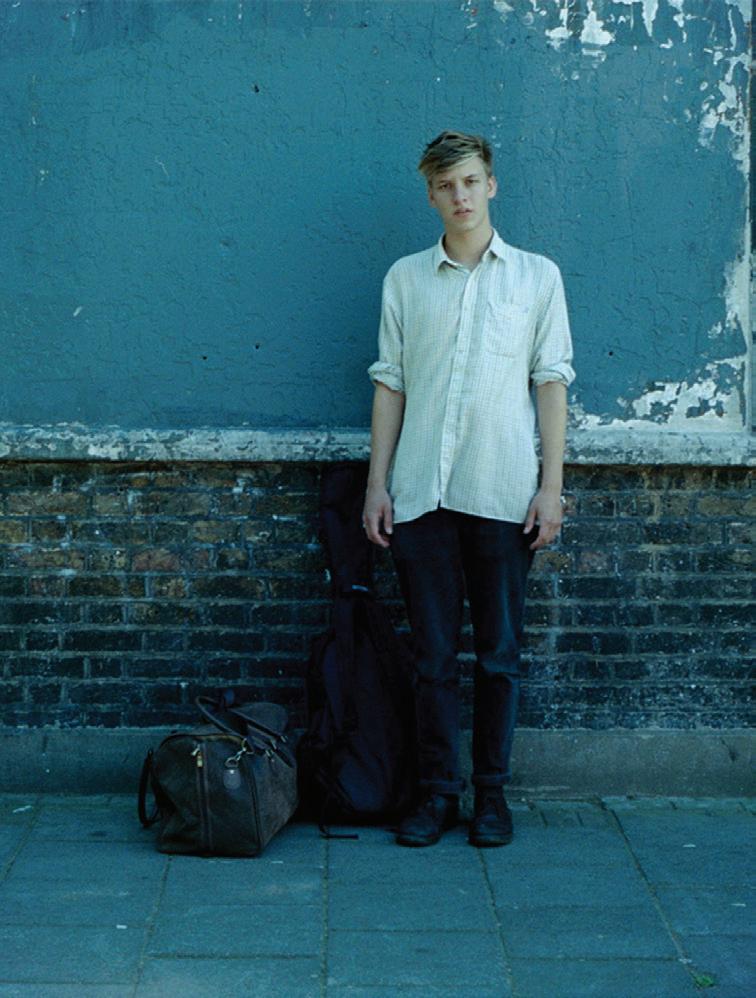



Recently travelled into the depths of rural West Africa?
Entered a community hospital with no protective clothing, been in close contact with an infected patient and touched bodily fluids? If the answer is no, let’s be clear: you are extremely unlikely to catch Ebola.
is is contrary to what several media outlets would have you believe. “Ebola terror as passenger dies at Gatwick”, “You are not nearly scared enough of Ebola” and “6 tested in NYC for Ebola: news withheld from public” include some of the atrocious headlines blighting the front pages.
Even a terrible rumour has been floating around campus about someone leaving Student Union night Flux in an ambulance “because she had Ebola”. is definitely was not the case (the poor student had a concussion) and highlights the dangers of media scaremongering and how far it can reach.
Many scientists are now working hard to rein in the fears and speculation about the Ebola virus that although horrendous, is highly unlikely to affect us seriously in the UK. Edward Holmes, a prominent biologist at the University of Sydney said, “I am dismayed by some of the nonsense speculation out there. I understand why people get nervous about this, but as scientists we need to be very careful we don’t scaremonger.”
So what is the science behind the disease and why is there so much unfounded speculation? What is Ebola and why is it raging through West Africa, killing thousands of people and terrifying (in most cases unnecessarily) many across the globe?
and require the best help we can offer.
Ebola was first discovered in 1976, spilling over into humans from its natural host, the fruit bat. e virus is transmitted through contact with bodily fluids – blood, sweat, and saliva – that makes control difficult. Outbreaks have emerged in areas of West and Central Africa every few years since, but not with the same devastation as this year’s epidemic.
Countries majorly affected are limited to areas of West Africa –Guinea, Liberia, Nigeria, Senegal and Sierra Leone. ese are instable countries, slowly recovering from civil wars, with poor healthcare infrastructure and cultural practices that can prevent effective containment. Families have been removing their deceased loved ones from hospitals to perform their own burials.
ose who are infected refuse to seek medical attention, frightened that doctors may actually be infecting them and there are even conspiracy theories that the Ebola virus does not exist; it is just an elaborate attempt of the US government to terrify us all.
e Ebola virus is deadly, but just how deadly is often exaggerated. With no current clinically tested treatment, the mortality rate stands at 51% with 4493 deaths. However, in the time the outbreak has been reported, there have been around 1 million deaths due to HIV/AIDS, 500,000 due to malaria and 400,000 due to diarrhoea – easily preventable illnesses. Are we worried about the wrong disease?
but must suffer the consequences!” e two cases in Dallas appear to be from inadequate infection controls, a healthcare worker admitting she touched her face with a glove after treating an infected patient.
Although Texas Health Presbyterian Hospital has apologised, admitting “we made mistakes... we are sorry”, this hasn’t stopped speculation that the virus is more dangerous than first thought.
Many are discussing the revalation that Ebola could become airborne, if not already, evolving and mutating into a super strain that will be unavoidable. Virology Professor Vince Racaniello of Columbia University said, “Has any human virus ever changed its mode of transmission? e answer is no. We have been studying viruses for over 100 years, and we’ve never seen a human virus change the way it is transmitted.”
ere is absolutely no proof that Ebola spreads through the air and this seriously limits the danger of widespread human infection. Unless you come into contact with an infected person who is showing symptoms, you will not catch the disease.
So all in all, are you safe to fly? Pretty much. Are you going to catch Ebola? It’s highly, highly unlikely. Are we all going to die? Definitely not. Ebola virus deserves our respect as a lethal pathogen that is killing thousands of people in Africa, but it does not demand the sheer terror the media would have you suffer.
Professor Chris Blattman
Ebola is a virus that can cause a deeply unpleasant fever that can kill up to (but definitely not always) 90% of those it infects. Initial symptoms appear as a rather violent bout of the flu, with soaring temperature, muscle pain, headaches and weakness. It then spirals to violent diarrhoea and vomiting, your liver and kidneys will begin to fail and finally, you will bleed from every orifice. It’s no surprise this has the world morbidly excited - it sounds like something from a dark horror film.
According to the World Health Organisation, by the Monday just passed, a total of 8897 cases have been reported in seven affected countries, with 4493 deaths. ere is no downplaying that this virus is very dangerous and that those affected countries deserve sympathy
Professor Chris Blattman, from Columbia University, tweeted a poignant comment; “Ebola is the Kardashian of diseases. It steals all of the attention… it’s being talked about like it the apocalypse.”
Since three cases have been reported in Western Countries, two in the US and one in Spain, media coverage about the Ebola virus has boomed. As Cardiff Lecturer and Guardian writer Dean Burnett notes, “if you go by media coverage, the worst thing about it is that it might end up affecting the UK, US or similarly developed wealthy nations. And we can’t have that now, can we.”
Donald Trump, a controversial American television personality, tweeted his opinion on treating Ebola infected healthcare workers in the US, which seems to be the latest cause of an infection in Dallas; “ e U.S. cannot allow Ebola infected people back. People that go to far away places to help out are great –
How contagious are diseases on average?



Researchers based at Cardiff University are pioneering a new anti-cancer treatment which involves programming the body’s immune system to kill cancer cells.
Researchers of Cardiff’s T cell modulation group continue taking steps towards understanding the immune system in the hope to harness it’s power in fighting cancer and autoimmune disease.
We are tailored to fight off the billions of bacteria, viruses, microbes and toxins that surround us and would love to invade our body. This complex and intricate mechanism, the immune system, works around the clock to protect us and is made up of many parts to do the job efficiently – antibodies, bone marrow, your spleen; even hormones play a part.
Researchers Professor Andy Sewell, Dr David Cole and Dr Pierre Rizkallah of the School of Medicine choose to focus on the job of a type of white blood cell in this protective system, the T cell.
Killer T cells mainly fight off infectious diseases but are also very important in killing cancer cells. They have a special safety mechanism that means they usually don’t target normal healthy cells, attack-
ing only foreign invaders that mean us harm.
When this mechanism, called self-tolerance, doesn’t work properly, the body can go into overdrive and attack itself. The immune system goes haywire and forgets its loyalty to the body, causing diseases like multiple sclerosis, rheumatoid arthritis and type 1 diabetes.
A better understanding of selftolerance and how T cells work holds promise in treating these diseases and fighting cancer. Working with researchers at the University of Basel, Professor Sewell and Dr Cole have recently published findings in Cell that show there is a ‘biological clock’ to control T cell loyalty to the body. This eliminates any T cells that don’t mature enough to function properly that might later cause autoimmune disease.
Self-tolerance is important in stopping immature T cells wreaking havoc, but it can limit how effective they are in fighting cancerous cells.
With a better understanding of the structure and mechanism of how they work, the Cardiff group studies

the potential of engineering and manipulating T cells to destroy tumours.
Working with Immunocore, a biotechnology company based in Oxford, the group looks at molecules on the surface on T cells called T cell receptors (TCRs). They engineer these artificially so the TCRs bind tightly to cancer cells and activate non-cancer specific T cells to kill.
Some of this work was published in giant science journal Nature in 2012. Professor Andy Sewell, commenting on this work, said: “T cell receptors have advantages over antibodies as these molecules can see inside cells and tell if they are abnormal. Similar technology based around antibodies has shown great
Ateam at Harvard University has recently made a tremendous step towards a potential cure for type 1 diabetes. Professor Doug Melton has made use of embryonic stem cells, a unique type of cell which can convert to any other type of cell.
His team has managed to develop a process that causes them to develop into beta cells that produce insulin, potentially allowing the pancreas to be repopulated with insulin-producing cells, effectively curing the condition. Trials on mice showed that the lab-made cells could successfully produce insulin for several months.
Diabetes is one of the fastest growing medical conditions in the modern world. The NHS has estimated that there are currently 3.1 million people living with the condition in the UK, with the charity Diabetes UK estimating this number will climb to 4 million by 2030. The disease is debilitating and lifelong, and while it can be effectively managed with insulin injections, sufferers are five times more likely to develop heart disease or suffer from a stroke. There is currently no known cure. 90% of diabetics possess the Type 2 variety, which is caused by the body’s cells not recognising, or building up a resistance to, the hormone insulin. This
is the substance the body uses to transport energy from the bloodstream into the body.
It generally develops later in life and is commonly caused by a poor diet or sedentary lifestyle, although certain ethnic groups are more susceptible to the disease due to genetic factors. This differs significantly from the rarer Type 1 variety, which is an autoimmune condition where the body mistakenly interprets the pancreas, the organ that produces insu-

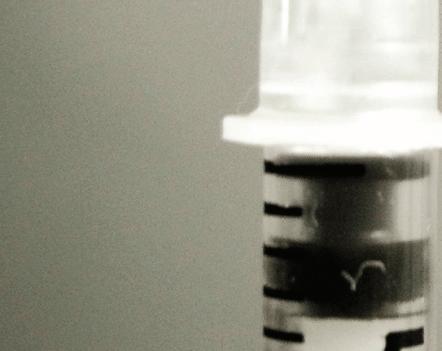
lin, as a hostile threat, and attacks it with the immune system. This leaves the sufferer unable to produce any insulin at all and typically develops in children. Its precise causes are unknown.
Professor Melton said “It was gratifying to know that we could do something that we always thought was possible…we are now just one pre-clinical step away from the finish line.” A key driving point for Doug Melton’s research is his two children, who are both type 1 diabetics.





promise in clinical trials. This new TCR-based research technology extends this potential as it could possibly be applied to any form of cancer.”
Engineering a TCR to bind a cancerous cell 30,000 times better than before, Dr Cole and colleagues have also solved the structure of the enhanced receptor and made significant advances in targeting melanoma, a common skin cancer.
Professor Dave Stuart of Diamond Light Source, a contributor to this work, said, “The development of engineered T-cell receptors is still at an early stage but this indicates not only considerable potential for cancer treatments but suggests that there may be significant implications for a host of other diseases.”
His children were not overly impressed with his discovery “I think, like all kids, they always assumed that if I said I’d do this, I’d do it.”
However, while Melton’s research is a critical first step, there are still significant hurdles to overcome. By far the most daunting is developing a process to prevent the body from mistakenly attacking any re-introduced insulin-producing cells all over again. Dr Gillian Morrison of the University of Edinburgh has said “The next important challenge will be to find ways to maintain these cells inside the body so they are protected from the immune response and have long-term function.”
But Melton’s team is already developing an answer, beginning with trails of a thin artificial membrane that allows glucose to pass through it while shielding the new cells from the body’s immune system. Melton explains that “We’re thinking about it as sort of like a teabag, where the tea stays inside, and the water goes in.”
The processes developed by Doug Melton and his team are currently undergoing clinical trials in animals, including primates. Melton has announced that he hopes to begin human trials “within a few years.”
Killer T cells mainly fight off infectious diseases but are also very important in killing cancer cells.
Pictured: Type-1 diabetics are dependent on insulin injections to control their condition. ...we are now just one pre-clinical step away from the finish line
Professor Doug Melton Harvard University
tweet us @gairrhyddsoc email us societies@gairrhydd.com or visit us online at gairrhydd.com/societies
Monday 20th October
Give It A Go
Heath Park Event - Welsh Language Info Lunch 12 - 2pm IV Lounge, Heath Park Campus
Chaos Society & MathSoc Project X² - all things American: think red cups, beer pong and the music from the film Project X for the first joint social of the year, a chance for our societies to mingle before future joint events. 7pm - 2am
Koko Gorilaz - Tiger Tiger (including Karaoke between 11-12)
Tuesday 21st October
Student Enterprise
The Dream Team 9am - 24th October 5pm
Give It A Go
Mei Yi Foo Piano Lunchtime 12-3pm Meet in Students’ Union Reception
Skills Development Service CCUSA Summer Camp Counselor Presentation 1pm - 2pm
Room 4J, Students’ Union
Creative Writing Society
Give It A Go Creative Writing
7pm - 9pm Meet in Students’ Union Reception
Give It A Go
German Language Taster
7.30pm - 8pm Room 3A, Students’ Union
Art Society Modroc
8pm - 10pm Room 4H, Students’ UnionW
Wednesday 22nd October
CoppaFeel Society
Boob Week Social 9am - 12pm Y Plas
Give It A Go
Student Enterprise - Decisions, Decisions Workshop 2.30pm - 4.30pm Centre for Skills, Enterprise and Volunteering, Students’ Union
Black History Month: Sikh Society Langar Event
3.30pm - 6pm
Hello everyone! To the many new readers of our student newspaper, welcome to Cardiff! If you haven’t seen my massive face on the Union lobby poster, my name is Barney and I am the Vice President for Societies at the Students Union. We have nearly 200 societies here at Cardiff with over 7000 members and it is my happy job to support them in any way possible. I also get to organise some of the Unions biggest
and best events, like the Cardiff Fringe Festival and Go Global, our annual celebration of all things international. Safe to say there is much going on and we are incredibly lucky our Union is such an active and vibrant community. If you have yet to get involved in a society, YOU SHOULD! Societies present thousands of unique experiences to students and are essential to getting the most out of your time here. If you haven’t
Airsoft Society provides an affordable way for students to play airsoft both recreationally and competitively. It is a relatively new sport that is similar in many respects to paintball, but with a few key differences. Most importantly is the use of airsoft guns, essentially sport grade BB guns, similar to the small plastic BB guns you had as a kid, but made to full scale and for competitive use. Airsoft guns fire round plastic pellets or “BBs” at low velocities and have a far greater range and accuracy than paintball guns as well as looking far more realistic.
Membership is £30 a year and
Global Health Student Network Child Health
5.30pm - 8pm
Small Chemistry Lecture TheatreMain Building
LGBT+ Society Board Game Night! 6pm - 11pm Room 4A, Students’ Union
Thursday 23rd October
Give It A Go
Student Enterprise - How to Assess a Good Idea Workshop 6pm - 8pm Room 4J, Students’ Union
Occupational Therapy Society Quiz Night
An informal fun evening to meet people in other year groups and on other courses. Entry £2 members, £3 non members
7.30pm IV Lounge, Heath Park Campus
Art Society Life Drawing
7pm - 9pm Room 4D, Students’ Union
Friday 24th October
Christian Union Weekend Away midnight - 26th October midnight Ledbury
already, check out the Societies list on CardiffStudents.com and sign up to a few online. We have everything from choirs to religious groups, debating to Jazz. If you have a hobby, we probably have a society of likeminded people to enjoy it with! If you need any help, find me on Facebook, Twitter or send me an email on VPSocieties@Cardiff.ac.uk.
I will be bringing news from the wonderful world of societies to this column every week so keep your eyes peeled! Now, have a look at some of the other articles on this double page spread and get involved!
Student Scout and Guide Society Freshers Camp 6pm - 26th October 2pm Silver Cross Scout Centre
LGBT+ Society Cocktail Night! 6.30pm - 11pm
Meet outside Next in town at 18:15
Expression Lord of the Flies Theatre Trip 24th October 7:30pm - 10pm
Saturday 25th October
Computer Gaming Society SnowSpire Esports Championship 9am - 26th October 9pm Cardiff City Stadium
Anime Society MCM Expo Trip 3pm - 26th October midnight
Breakdance Society
Give It A Go Breakdancing 5pm - 7pm Room 4J, Students’ Union
Give It A Go
BBC Orchestra: Halloween Spooktacular 2pm - 5pm Meet in Students’ Union Reception
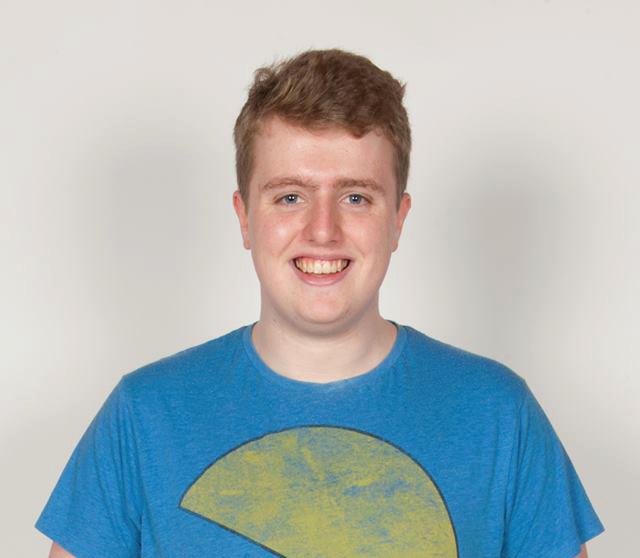
with this, members are guaranteed use of club equipment (a rifle, two magazines, a sling and a chest-rig) whenever they attend events, unless they choose to buy their own equipment. Events are usually around £5 for transport (though this is dependent on location) held weekly, alternating between practice training sessions and skirmishes which are airsoft games. They take place in a variety of different sites, although they will mainly be visiting the Dragon Valley site situated on an active MOD Army base by Caerwent and other sites around Bristol.
This year so far, the society has held a public taster session and
on the 19th October they had a training session on Pyrotechnics, and one public skirmish. This year there is an effort to plan many inter-university games and a large inter-university weekend, uniting all university airsoft teams. They run fortnightly socials and also won the award for the most engaging society on the Tuesday of the Freshers’ Fayre this September.
Learn more about Airsoft Society: https://www.facebook.com/cardiffuniairsoft https://www.youtube.com/channel/UCcSieJp_GxiSLM7UPTanG6A

Running for fun never really made sense to me. It made even less sense after my first ever run, which lasted for about twenty minutes, was barely a mile and gave me chest pain and a wheeze that lasted for about three days. I used to think it’d take a miracle to make me brave the unwavering Cardiff drizzle for exercise, and I suppose in in the end, my motivation for signing up for this year’s Cardiff Half comes pretty close.
I’m this year’s president of Cardiff University Paediatric Society (CUPS). We’re a society for students from all healthcare courses that want to have a fulfilling and successful career caring for children, whatever our chosen profession. We host educational events, fundraisers, set up volunteering schemes and pair students with research
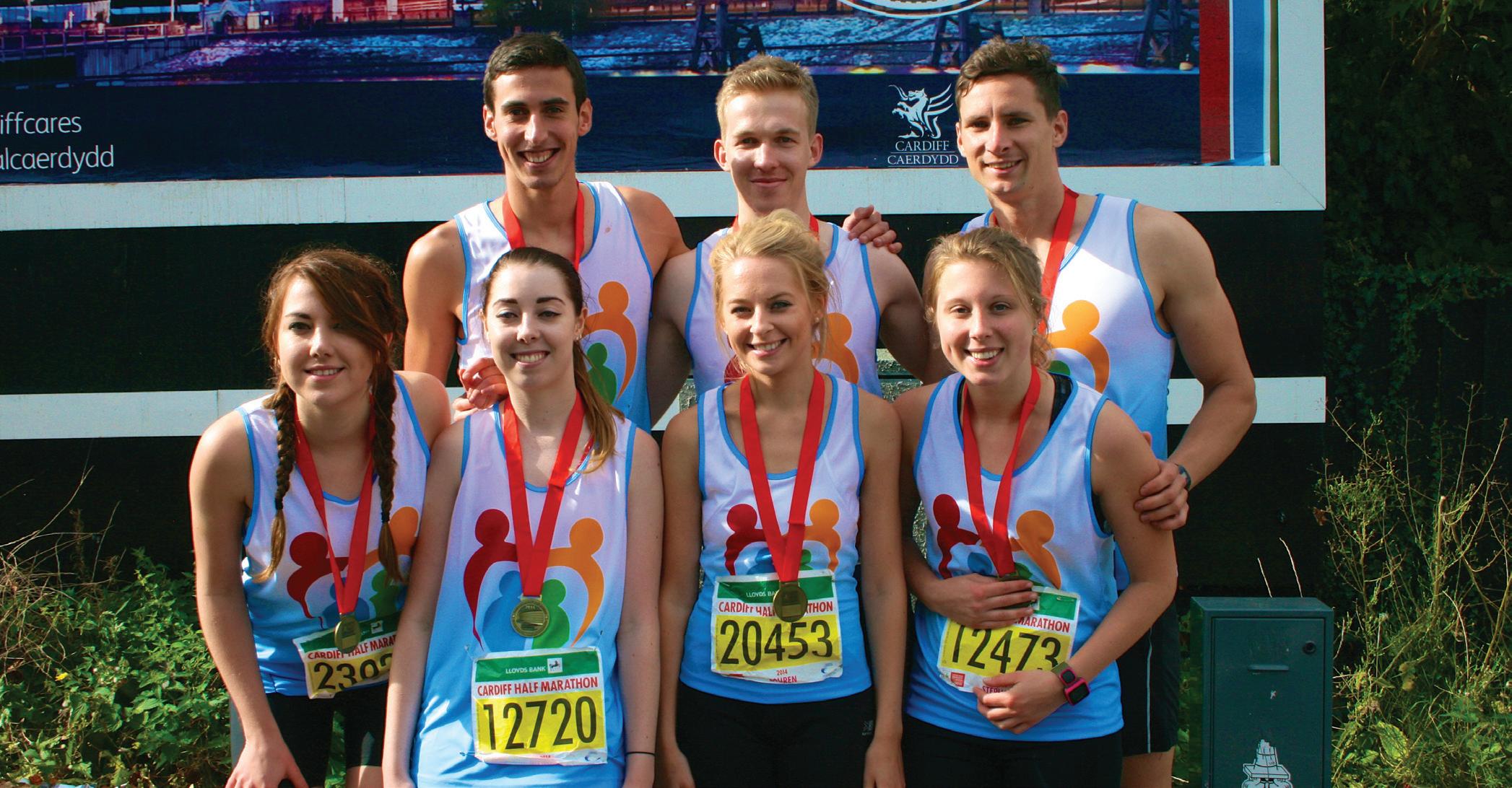
opportunities. Last year CUPS decided to get a team together to run the Cardiff Half Marathon 2014 for charity, and managed to persuade/ force twelve members into running for us!
Telling someone (who knows you) that you’re going to run 13.1 miles gets a variety of reactions - I think someone genuinely offered me money NOT to do it. e actual majority of our nearest and dearest however, were more supportive than we could have asked for, especially once they knew a bit about who we were raising money for: Serennu Children’s Centre in Newport. It’s a fantastic centre for local children with complex needs and their families, which acts as a friendlier environment for medical consultations and treatments, as well as providing activities, education, advice, support and respite.
Half of our team were already established runners and the other saner half, like me, spent the year dragging ourselves outside for the next impending jog.
We then designed brightly coloured running shirts and spammed all of our Facebook friends (sorry) to drum up sponsorship.
e 5th October came round much quicker than expected, but we all headed down to the starting line in the morning pumped full of a mix of enthusiasm, fear and porridge. e atmosphere was absolutely electric. Sure, it felt incredible being part of the CUPS team but actually, the most invigorating thing was being one of the thousands who were there to run and raise money for the many people who deserve it. We were all in it together, the crowd cheering us on with pots of jelly babies and children giving us high
Dfives. e last couple of miles were unsurprisingly the toughest but actually, as I sprinted towards the finish line (which is probably the best thing I’ve ever seen), a year full of blisters, muscle aches, early mornings and more lycra in my wardrobe than should be allowed, it all seemed worth it.
As we congregated in the pub afterwards to ‘refuel’ and compared PBs (congrats Jack Casey 1.20 and Callum Priest 1.27) somebody read out our fundraising total. Unbelievably, we’d raised just over £1110 and to date, the sponsorship is still slowly coming in! I’m so unbelievably proud of our team, and I’d like to say a huge thank you to everyone who donated- couldn’t/wouldn’t have done it without you.
To keep up with what we do, visit @CUPaedsSoc or our website www.cupscardiff.co.uk
o you know what happened in Sri Lanka at the end of the civil war? Were you even aware there was a civil war? Do you have any idea of the atrocities that occurred? Two weeks ago, I answered no to all three questions –and now I’m joining the campaign to #Break eSilence.
Last week saw the Breaking the Silence campaign come to Cardiff, fronted by Tamil Society and Amnesty International. A pop up exhibition travelled around the university enlightening students to the war crimes that occurred in Sri Lanka and gathering names for an impending E-Petition on the matter.
For those as oblivious as I was, Sri Lanka was in a state of civil war for 26 years, ending in 2009. e war was between the Tamil minority population and the Sinhalese majority. When the war ended 75,000
Tamil people were told to enter government declared “safety zones”, under the premise there would be no

fire – for many people entering these camps it was the last thing they did. ey were killed.

When students at the exhibition were given the opportunity to voice their opinion on the matter, words such as “speechless”, “barbaric” and “brutal” dominated. Paran Kiritharamohan, Tamil Society committee member, says “Breaking the silence is an exhibition to raise awareness for the inhumane war crimes which occurred in Sri Lanka. It concerns me that such a serious issue is not more publicised. is is what we set out to do; spread the word, raise awareness, and try to get a few steps closer to justice, however small they may be.”
Genocide is just the tip of the iceberg. Sexual violence, torture and denial of basic human rights occurred alongside the systematic killing – and it’s time for something to be done. To support the cause, use the hashtag #Break eSilence, and keep a look out for Tamil Society’s events in the coming year.
When the Sri Lankan civil war ended in 2009, 75,000 Tamil people were told to enter government declared “safety zones” - they were killed.
trydar @taf_od
ebost tafod@gairrhydd.com ar-lein gairrhydd.com/tafod
Steffan Bryn Jones
Morgan OwenGobeithio i bawb naill ai ymgartrefu am y tro cyntaf, neu ail-ymgartrefu yng Nghaerdydd yn ddedwydd a bod yr wythnosau cyntaf yma wedi bod yn rhai pleserus. Mae gennym amrywiaeth o ddarnau i’w cyflwyno i’ch sylw yn y rhifyn hwn: mwy am hynny yn y man.









Rwyf am gymryd y cyfle i rannu tipyn o’m hargraffiadau o’r dechreuad a gafwyd i’r tymor. Yn rhinwedd fy swydd fel Swyddog y Gymraeg, bu wythnos y Glas yn hynod brysur rhwng popeth. Bûm yn Ffair y Cymdeithasau yn cyd-weithio â chriw Pwyllgor y GymGym yn ogystal ag Elliw Iwan, Swyddog Cangen Caerdydd o’r Coleg Cymraeg. Roedd y brwdfrydedd a’r chwilfrydedd ymhlith myfyrwyr am y cyfleodd i fyw, cymdeithasau ac i astudio yn Gymraeg ym Mhrifysgol Caerdydd yn codi calon unwaith eto eleni. Brafiach fyth ‘oedd gweld y diddordeb hwnnw yn dod o du fyfyrwyr o pob cefndir: boed hynny o wahanol gefndiroedd o fewn Cymru neu, yn wir, y byd.
Gan symud ymlaen at ddechrau Hydref, cynhaliwyd gig lwyddiannus iawn yng Nghlwb Ifor bach nos Sadwrn, y 4ydd. Cafwyd perfformiadau cofiadwy gan y Reu, Ysgol Sul ac Yr Ods. Roedd mynediad am ddim i aelodau’r Coleg Cymraeg ond roedd hefyd modd ymaelodi wrth y drws. Deallaf i bedair tudalen o aelodau newydd i Gangen Caerdydd gael eu darganfod yn sgil cynnal y gig. Bydd modd hysbysu yr aelodau newydd hyn, a adnabuwyd drwy weithgaredd cymdeithasol, ynglyn â chyfleoedd ehanagach i fyw’n Gymraeg. Gellid eu hannog, er enghraifft, i astudio rhan o’u gradd yn Gymraeg ac mae’n fodd o fesur y galw mewn adrannau lle nad oes darpariaeth. Diolch i’r Gangen felly am drefnu’r gig a hynny eleni am y drydedd flwyddyn yn olynnol.
Nos Fawrth, 6ed o Hydref, fe heidiodd criw y Gymdeithas Gymraeg i dafarn
Owain Glyndwr er mwyn cychwyn ar grôl gyntaf y flwyddyn, sef Crôl Teulu.
Syniad y crôl yw i groesawu aelodau newydd i’r gymdeithas gan osod y myfyrwyr hynny i fewn i deuluoedd, pawb yn cael Mam neu Dad, Nain neu Daid. Mae pob rhiant yn gyfrifol am eu plant eu hunain yn ystod y noson a am wneud yn siŵr eu bod yn cyrraedd adre’n saff ar ddiwedd noson drom o yfed! Unwaith i bawb gael eu rhannu i’w teuluoedd, dyma ddechrau ar y crôl. Erbyn tua 9 o’r gloch roedd hi’n di-
Rhaid dweud ein bod fel myfyrwyr Cymraeg Caerdydd yn ffodus iawn gyda’r arlwy gymdeithasol a ddarperir, o’r gig i’r Crôl Teulu bythefnos yn ol: mae gwledd! Roedd niferoedd y Crôl Teulu ymhell dros gant a hyfryd oedd clywed yr holl dafodieithoedd o Lanhari i Langefni ac o Lan Clwyd i Ddyffryn Teifi- rwy’n siwr bod bob ardal o Gymru wedi ei chynrychioli yn y teulu mawr! Ar lefel ehangach, mae ‘na neges glir y tu ol i’r holl hwyl a’r miri: mae na do o fyfyrwyr sy’n dymuno byw yn uniaith Gymraeg yn y brifddinas. Er mor ddu yw’r rhagolygon ynghylch dyfodol y Gymraeg, byddwn yn dweud bod hyder fan hyn yng Nghaerdydd a hwnnw’n hyder heintus. Prawf arall o’r ochr gymdeithasol o bethau yn mynd o nerth i nerth, nid bod angen prawf, yw’r noson Gymraeg fisol y bydd Clwb Ifor yn ei chynnal ar nosweithiau Llun olaf bob mis. Dyma sefydliad sydd wedi adnabod cyfle ac ymateb i ddymuniadau myfyrwyr Cymraeg: maent wedi creu galw. Ond, am ennyd, ga’i gymryd cam yn ol o’r ochr gymdeithasol, does dim amheuaeth ein bod yn araf deg yn meddiannau’n dinas gyda’r hwyr. Ond beth am yr ochr wleidyddol, beth am ein trefniadaeth fel myfyrwyr Cymraeg, beth am ein dylanwad ehangach? Beth sy’n cynnal y gymuned Gymraeg gref sydd gennym yn gymdeithasol? Nid yw’n gyfrinach dweud mai diolch i waith diwyd ac ewyllys da y lleiafrif y gallwn fwynhau’r cyfleoedd cymdeithasol hyn. Fe welwch thema yn datblygu, a dyma yn wir yw bwrn fy neges: mae’r ochr gymdeithasol yn mynd o nerth i nerth ond nid yw hynny’n cael ei adlewyrchu mewn termau ffurfiol a strwythurol o safwbynt y dylanwad sydd gennym fel Cymry Cymraeg ,neu beidio, o fewn Undeb y Myfyrwyr ac i raddau llai y Brifysgol. Mae’n rhaid inni sylweddoli heb drafnia-
daeth gref, heb fformiwla ariannol sydd wedi ei chytuno a’i diogleu, heb gydnabyddiaeth deilwng i’r gymuned Gymraeg gael elfen o annibynniaeth i redeg ei materion ei hun bod yr ochr gymdeithasol yn ogystal â gwleidyddol yn fregus mewn gwirionedd. Mae hynny’n amrywio o gost mynychu digwyddiadau megis Eisteddfod Rhyng-gol i annibynniaeth olygyddol ein llwyfan newyddiadurol fel myfyrwyr Cymraeg, sef y ddwy dudalen hon ar hyn o bryd. Dychwelwn yn awr at y rhifyn, braf yw cael derbyn cyfraniad gonest a theimladwy gan Cerith Rhys Jones, sy’n cyfrannu fel cyfrannwr gwadd inni eleni, gresyn, fel y gwelwch o’i erthygl, nad ydyw’n fyfyriwr yma eleni fel y disgwyl. O’r llwm i’r llon wedyn, gydag argraffiadau Siwan Jones ar y Crôl Teulu a ddigwyddodd ychydig o wythnosau yn ôl bellach. Gobeithiaf bod thema i TafOd yr wythnos hon… Rwyf innau o’r farn nid yn unig y gallwn gael y gorau o’r ddau fyd ond mae RHAID i ni ddod o hyd i’r cydbwysedd hynny, ac rwy’n sicr y gwnawn ni. Eisoes, fel eich swyddog etholedig, rwyf wedi bod yn cynnal trafodaethau cyffrous tu hwnt; gobeithiaf rannu cynlluniau gyda chi yn fuan iawn.
Gair byr o’n cyd-olygydd, Morgan: Gwelwn felly bwysigrwydd y deupeth hwn; yn wir, mae’r naill yn cynnal y llall ac nid gormodiaith yw dweud eu bod yn gwbl annatod. Ymdrechwn dros yr wythnosau nesaf i’w cyd-weu fel na ellir bellach danseilio ochr gymdeithasol y bywyd Cymraeg yn y Brifysgol oherwydd diffyg llais gwleidyddol; neu yn wir, diffyg llais yn gyffredinol o fewn yr Undeb. Byddwn yn sicr o’ch diweddaru’n fynych am y sefyllfa, yn ogystal â digwyddiadau Cymraeg eraill. Gyfeillion, hwyl am y tro!
...nid yn unig y gallwn gael y gorau o’r ddau fyd ond mae RHAID i ni ddod o hyd i’r cydbwysedd hynny...
pyn o her cerdded drwy’r dafarn wrth geisio osgoi pyllau o chwyd ar y ffordd i’r bar. Yr un oedd yr olygfa yn yr holl dafarndai ar hyd y crôl. Erbyn tua diwedd y crôl, ac eff aith yr holl alcohol yn dechrau bwrw, ddechreuodd y nifer lleihau yn raddol gyda sawl rhiant yn gorfod mynd â’u plant yn ôl i’r gwely yn gynnar!
Man olaf y crôl oedd Clwb Ifor a chafwyd gig wych yno, gyda’r rheini a lwyddodd i oroesi yn mwynhau’r gerddoriaeth Gymraeg gan DJ Elan a Mari, gan gynnwys rhai o’r clasuron megis Ysbryd y Nos a Meganomeg! Edrychwn ymlaen at y crôl nesaf!
 Siwan Jones
Siwan Jones
Cerith Dafydd Rhys-Jones
Cyn-fyfyriwr Ysgol y Gymraeg ac Ysgol y Gyfraith a Gwleidyddiaeth, cyn-Swyddog Myfyrwyr Cymraeg Undeb Myfyrwyr Prifysgol Caerdydd, cyn-Gyd Olygydd Taf-Od
Efallai bydd y sawl ohonoch sydd wedi dod yn ôl i Gaerdydd fel myfyrwyr yr ail flwyddyn a’r olaf yn adnabod fy enw’n iawn, ond ichi fyfyrwyr newydd, croeso i Gaerdydd! Fel y soniodd Morgan a Steffan, eich cyd-olygyddion newydd, yn rhifyn cyntaf Taf-Od eleni, mae yma gymuned Gymreig a Chymraeg wych, ac mae’n tyfu! Diolch byth am hynny.
Llynedd, fi oedd Swyddog Myfyrwyr Cymraeg yr Undeb. Roeddwn hefyd yn un o gyd-olygyddion TafOd. Nid yw rôl cyd-olygydd Taf-Od yn dod yn awtomatig wrth fod yn Swyddog Cymraeg, ond mae’n dod yn dipyn o arfer! Ers imi raddio yn yr haf, rwyf wedi ennill swydd yma ym Mhrifysgol Caerdydd.
‘Dw i newydd ohirio fy mynediad at gwrs ôl-radd yng Nghaerdydd. Fel Steffan, Cymraeg a Gwleidyddiaeth oedd fy ngradd gyntaf, a chroesi bysedd, byddaf y flwyddyn nesa’n astudio am radd MScEcon mewn Llywodraeth a Gwleidyddiaeth Cymru yng Nghanolfan Llywodraethiant Cymru, dan arweiniad yr Athro Richard Wyn Jones – enw cyfarwydd i nifer ohonoch, heb os.
Fy mwriad gwreiddiol oedd dechrau’r cwrs hwnnw eleni, ond oherwydd nid oedd gen i swydd bar-
haol cyn dyddiad dechrau’r cwrs, nid oeddwn yn gallu ymrwymo i’r cwrs – o gofio fod y ffi bron yn £6,000 mil. Fel rhywun sydd newydd fod trwy’r broses o dderbyn cynnig a wedyn gohirio, mae gen i brofiad diweddar o’r broses o ddod o hyd i gyllido. Roeddwn yn ffodus iawn o ennill ysgoloriaeth wrth y Coleg Cymraeg Cenedlaethol i astudio’r cwrs, ac rwy’n ofnadwy o ddiolchgar am y cynnig hwn. Ond yn anffodus, mae cost y cwrs bron iawn yn ddwbl gwerth yr Ysgoloriaeth. Felly, heb swydd barhaol i dalu gweddill y ffioedd, roedd y peth yn amhosibl. Sefyllfa anffodus iawn yw pan fo rhywun sydd wedi bwriadu ymgymryd â chwrs Meistr ers cyn hyd yn oed dod i’r Brifysgol yn gorfod newid i ddilyn y cwrs ar sail ran-amser (gyda’r gobaith o ddod o hyd i swydd lawn-amser, barhaol yn weddol sydyn), a wedyn gohirio dechrau’r cwrs tan y flwyddyn academaidd nesaf oherwydd diff yg cyllid. Wrth gwrs, roedd gen i’r opsiwn o gymryd Benthyciad Datblygu Gyrfa Proffesiynol, ond fel y nifer helaeth o bobl, nid wyf yn gallu fforddio bod mewn sefyllfa ble fydd yn rhaid imi ddechrau addalu’r benthyciad yn syth wedi imi raddio – os oes gen i swydd neu beidio.
Mae problem hefyd o ran telerau rhai Ysgoloriaethau. Mae nifer o sefydliadau’n cynnig Ysgoloriaeth sy’n gofyn nad yw’r deiliad yn derbyn Ysgoloriaeth lawn gan unrhyw sefydliad arall. Pe bawn i wedi gallu derbyn y ddwy Ysgoloriaeth a gynigiwyd imi, ni fyddai unrhyw anhawster gyda fy nghyllido, oni bai am ddod o hyd i gostau byw. Rwy’n derbyn bod angen i sefydliadau sy’n dyfarnu Ysgoloriaethau sicrhau eu bod hwythau yn unig yn gallu elwa (o safbwynt marchnata) o lwyddiant y myfyrwyr dan eu nawdd, ond mae amodau fel hyn hefyd yn gallu atal myfyrwyr rhag cael mynediad at gyrsiau ôlradd. Cynigiwyd dwy Ysgoloriaeth lawn imi, ond dim ond un oedd hawl ei derbyn oherwydd rheolau’r ddwy sefydliad, felly gan na ddes i o hyd i swydd lawn-amser yn y cyfnod rhwng graddio a dechrau’r cwrs, doedd dim dewis ond gohirio.
Felly, oni bai fod rhywun yn ddigon ffodus i dderbyn Ysgoloriaeth neu grant sy’n talu holl gost y cwrs, mae’n debyg eich bod yn gorfod dibynnu ar gymorth ariannol y teulu. Neu mae’n rhaid gweithio. A chofiwch, wrth gwrs, nad ffioedd dysgu yw unig gost dilyn cwrs yn y Brifysgol – mae dal angen talu rent, a biliau, a chostau trafnidiaeth, a bwyd, a bywyd yn gyffredinol! O ble daw’r arian hwn tybed?
Mae’r system sydd ohoni’n golygu mai dim ond pobl a chanddynt dipyn o arian yn y banc yn barod, neu bobl sydd yn gallu galw ar gymorth ariannol eu teuluoedd, a all fforddio dilyn cwrs uwch heb orfod meddwl yn ddwys am sut yn y byd y byddan nhw’n fforddio byw. Mae cwrs uwch yn beth gwych i’w wneud – dyna pham rwy’n dymuno dilyn un! Yn wir, mae rhai’n dweud fod graddau meistr yr un peth heddiw ag oedd graddau is-raddedig rai degawdau’n ôl. Ond mae graddau ôl-radd ond yn
hygyrch i bobl freintiedig. Gwarth o beth yw hynny.
Sut allwn ni dderbyn y system hon yn iawn gan wybod ei bod yn cadw pobl sy’n ariannol ddi-freintiedig oddi allan? Allwn ni ddim. Pam nid yw’r system benthyciadau myfyrwyr ar gael i fyfyrwyr ôl-radd? Dydw i ddim yn gofyn am grant. ‘Dw i’n gofyn am fenthyciad, ar delerau sy’n unfath neu’n debyg i fenthyciadau i fyfyrwyr is-raddedig, i’m helpu i ddilyn cwrs gradd ôl-raddedig. Gyda gradd ôl-raddedig, mae’n debygol iawn y byddwn yn dal swydd ymhen rai blynyddoedd fydd yn talu’n well na phe bawn â gradd israddedig yn unig. Mi fyddwn yn gallu fforddio talu’r benthyciad yn ôl. Ar ôl dilyn gradd is-raddedig, mae gen i bron i £25,000 o ddyled. Pe bawn yn gallu derbyn benthyciad tebyg ar gyfer fy ngradd ôl-radd, byddai gen i bron i £40,000 o ddyled, ond bydd fy nghyflog yn y dyfodol gymaint yn uwch o fod â gradd ôl-raddedig fel y byddwn yn gallu fforddio ad-dalu’r ddyled honno. Mae angen ail-feddwl ac ailwampio’r system gyllido addysg uwch ôl-raddedig cyn i hyd yn oed yn fwy o bobl ddawnus gael eu heithrio o’r cyfle i ennill gradd uwch, ac i gyfrannu o’u harbenigedd i’r gymdeithas. Nid dim ond dadl ynghylch cyfiawnder cymdeithasol a helpu’r sawl sydd angen help yw hon; mae hefyd yn fater o sicrhau fod gennym arbenigwyr mewn meysydd diri a chanddynt raddau uwch sydd yn gallu cyfrannu i’r gymdeithas a bod yn rhan o fywyd cyhoeddus ein gwlad, pa beth bynnag eu cefndir ariannol a’u braint.
Gallwch ddilyn Cerith ar Twitter @cerithrhys neu ei e-bostio ar RhysJonesCD@caerdydd.ac.uk. Mae’n ysgrifennu hefyd ar www.medium. com/@cerithrhys.
Mae’r system sydd ohoni’n golygu mai dim ond pobl a chanddynt dipyn o arian yn y banc yn barod, neu bobl sydd yn gallu galw ar gymorth ariannol eu teuluoedd, a all fforddio dilyn cwrs uwch ...
Morgan Owen
Wrth i’r gwaith adnewyddu ar Lyfrgell y Celfyddydau dynnu at ei derfyn, mae cwestiynau wedi’u codi am y peiriannau hunan-wasanaeth a gyflwynwyd yn yr adeilad. Yn benodol, cwestiynau am le’r Gymraeg ar y peiriannau.
Dywedodd Steffan Bryn Jones, Swyddog y Gymraeg “Bu i mi dderbyn cwynion gan fyfyrwyr a oedd yn bryderus nad oedd modd defnyddio’r peiriannau yn y Gymraeg. Fodd bynnag, mae’n ymddangos bod modd dewis iaith ond nid ydy hynny’n ddigon amlwg o gwbl gyda’r dudalen flaen yn uniaith Saesneg a’r botwm Cymraeg bron yn anweladwy. Fe gofiwch fod sicrhau cydraddoldeb rhwng y Gymraeg a’r Saesneg yn un o egwyddorion craidd Cynllun Iaith diwygedig Prifysgol Caerdydd ac mae’n rhaid i’r Brifysgol sicrhau bod yr egwyddor honno yn weladwy o ddydd i ddydd i ddefnddwyr
gwasanethau’r Brifysgol. Mae lle i longyfarch y Brifysgol am sicrhau bod y Gymraeg wedi’i chynnwys yn y peiriannau hyn ac mae’r gwaith caled eisoes wedi’i wneud. Serch hynny, byddaf yn pwyso ar yr unigolion perthnasol o fewn y Brifysgol i sicrhau priod le’r Gymraeg ar dudalen flaen y peiriannau hyn gan sicrhau y gall siaradwyr Cymraeg fanteisio’n llawn ar y ddarpariaeth sydd eisoes yn bodoli yn ddi-wahân.”… Yn ôl cyfrif Twitter y Llyfrgell: “Os hoffech ddefnyddio’n peiriannau hunan-wasanaeth RFID newydd yn Gymraeg, gwasgwch eicon y glôb ar waelod y sgrîn i newid yr iaith. Mae’r llun (display) sydd gennym ar hyn o bryd yn un rhagosodedig rydym wrthi’n datblygu sgrîn fwy arbennigol gyda dewis Cymraeg amlycach. Ers ysgrifennu’r erthygl hon, anfonwyd llythyr y Brifysgol a chadarnhawyd y rhoir sylw pellach i bryderon myfyrwyr am hyn o beth

Datgelwyd nos Fawrth, 14eg o Hydref yn lawnsiad swyddogol ail-ddatblygiad yr Undeb Myfyrwyr y cafodd 1,400 o bleidleisiau eu bwrw yn yr etholiad i ddewis enw’r clwb nos newydd. Un dewis Cymraeg a gynigiwyd, ac meddai Prif Weithredwr yr Undeb, roedd yr enw hwnnw – Y Plas- ymhell ar y blaen. Fel rhan o’r gwaith adnewyddu, mae’r anthem genedlaethol wedi’i chynnwys ar y wal yn y Taf, er i’r cais gan Swyddog y Gymraeg i Gymreigio’r sillafiad ‘The Taff’ i ‘Y Taf’ gael ei wrthod.
Datgelwyd yn y lawnsiad yn ogystal, Strategaeth Amlinellol yr Undeb ar gyfer 2014-17 a cheir ynddi ymrwymiad i ‘hybu’r iaith Gymraeg a’r diwylliant Cymreig.’
Steffan Bryn Jones
tweet us @gairrhyddsport
email us sport@gairrhydd.com or visit us online at gairrhydd.com/sport
Chris Coleman has attracted his fair share of criticism, his perseverance in installing this brand of football is impressive to say the least. is was definitely reflected in the setting of the Cardiff City Stadium’s international attendance record; 30,741 fans took in the game, creating an incredible playing atmosphere. is, combined with the emer-
gence of younger players such as Jonathan Williams and his namesake George has provided a fresh optimism that the production line of young Welsh talent hasn’t run dry following the recent emergence of the likes of Bale and Ramsey. Both youngsters shone against Bosnia, with Crystal Palace midfielder Jonathan working tirelessly to create chances, only to be forced off with an injury.
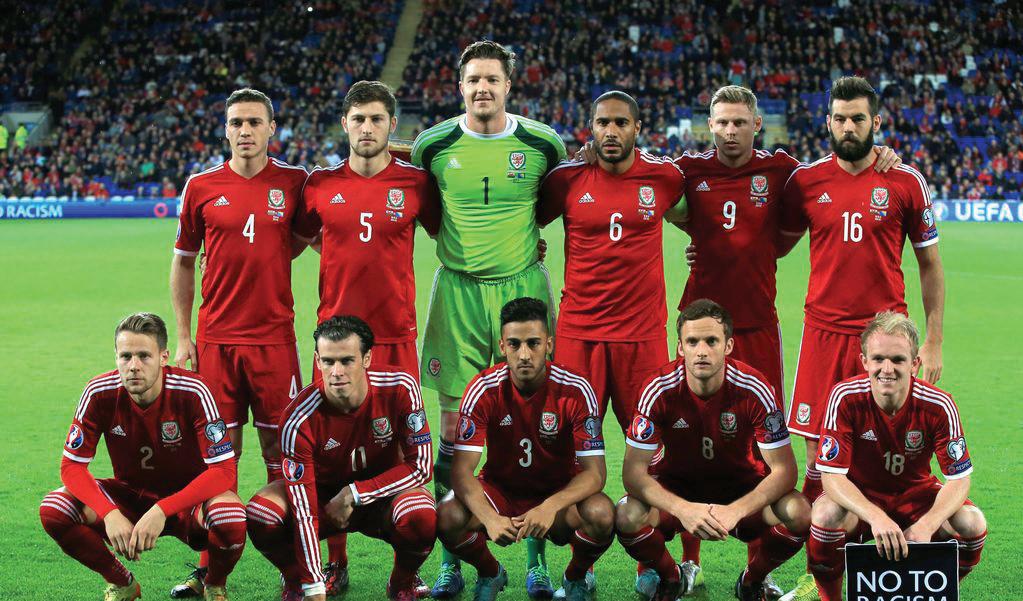
Fulham forward George’s brief cameo provided pace in the game’s dying embers, but his effect was really felt against Cyprus – his work rate phenomenal and his link-up play almost too easy. He was instrumental in the build up to David Cotterill’s looping opening goal and he played a pivotal part in the superb break and counter attack which ended with Hal Robson-Kanu slotting the ball between the goalkeeper’s legs. ere weren’t only positives to take from the games however, as a needless red card for Leicester’s Andy King saw Wales play almost an entire half with ten men. What’s more, Bale, although instrumental to the squad overall, missed and wasted several good chances over the two games that could have easily proved costly. e over-reliance on the Real Madrid man to perform needs to be addressed. While he is unquestionably talented, and one of the finest players in the world, the pressure needs to be taken off him for the excellent team spirit to continue to
thrive on the field.
Wales don’t play again competitively until a trip to Belgium in midNovember, but they now go into that game, and every other remaining game, with vital points already secured and a real confidence growing. Not since losing in the play-offs to Russia in 2004 have they been in as good a position to qualify for a major tournament. Judging from these performances, maybe Wales can dare to dream about playing in France in two years’ time.

Afrustrating 2014 season for Glamorgan County Cricket Club concluded with defeat on September 25th, as the Welsh county slipped to eighth position in Division Two of the LV County Championship.
Despite being beaten only once at Cardiff ’s SWALEC Stadium in their Championship campaign, only winless Leicestershire kept Toby Radford’s men from the foot of English cricket’s bottom first-class division.
e season had started in emphatic style with a ten-wicket win over Surrey at the KIA Oval in April, but their season stalled thereafter, with five draws and a defeat ensuing. It took until mid-June before Glamor-

gan secured their second Championship victory of the year.
A disappointing seven draws and six defeats from their sixteen league encounters gave Glamorgan fans little to cheer about throughout the year which culminated in an extremely below par finish of eighth in the Division Two standings.
e Welsh club fared slightly better in the limited overs format, narrowly missing out on a trip to the much coveted Natwest T20 Blast Finals Day, after they were beaten by one run against Lancashire in the quarter-finals.
Meanwhile in the 50-over Royal London One-Day Cup, Glamorgan finished 5th in their group which had
included eventual winners Durham and finalists Warwickshire, but given that they had made it all the way to a Lord’s Final in 2013, they may have hoped for more.
In his first season at the SWALEC, timeless South-African overseas player Jacques Rudolph, voted Glamorgan’s One-Day Player of the Year, delivered with the bat as he hit five centuries including a 111 off 180 balls against Somerset in August. He followed that up with a phenomenal 169 from 174 in Glamorgan’s impressive seven-wicket victory over Sussex just a week later.
Chris Cooke and Jim Allenby also looked impressive with the bat, amassing nearly 3,000 runs between

them. Michael Hogan, named Glamorgan Player of the Year, was the pick of the bowlers as he picked up 98 wickets in 2014, finishing leading wicket-taker in all forms for the Welsh side, while Jim Allenby, Dean Cosker and Graham Wagg all contributed ably with the ball.
As far as 2015 is concerned, preparation has already begun with the signings of batsman James Kettleborough from Northamptonshire, after Murray Goodwin, Gareth Rees, Tom Lancefield and Stewart Walters all left the club. eir overseas signing has not yet been confirmed, but Toby Radford is hopeful he can secure Jacques Rudolph for one more term.
There will undoubtedly be many obstacles in the way of the team this season
Jim Harris Pictured: e SWALEC Stadium, where Glamorgan lost just one Championship game in 2014Controversial sports club initiations have become the focus of intense debate in recent years. For those who are unfamiliar with the procedure, initiations involve first year students being tested and subsequently accepted into their respective sports teams.
Such rituals generally involve excessive amounts of drinking and are regarded as a club tradition. However, the initiations entail much more than just consuming a substantial volume of alcohol. Instead, this is combined with numerous challenges that accelerate the effects of alcohol on students’ bodies, particularly the likelihood of being sick.
Conventional methods include adding dog food to drinks, eating raw vegetables and consuming a spoonful of cinnamon.
just be a humorous practice that enhances team cohesion and brotherhood but the initiations can go to the extreme.
In 2006, Exeter University student Gavin Britton died in the aftermath of his initiation for the golf society. A fellow student claimed that Britton had consumed four vodkas, three pints of cider, a glass of wine and several shots of sambuca before downing a pint of spirits. Violent vomiting followed and what was supposed to be a night of amusement turned into one of tragedy.
ree years earlier, Alex Doji fatally choked on his own vomit after an initiation at Staffordshire University.
the universities, the NUS has to set a positive, professional example and therefore take appropriate measures to avoid any drink-related catastrophes.
Although some would argue that students should just refrain from participating in such activities, peer pressure can be a major contributor in deciding to be initiated. e failure to conform evokes fear amongst some students because they do not want to be subordinated. As they are just starting at university they seek acceptance and friendships, hence their acquiescence.
* Where those involved are free to participate or abstain as they see fit, and
* Where there is no fear of reprisal or consequence for non-participation in some or all of the activity.”
Director of Membership Services at the Cardiff University Students’ Union, Steve Wilford, said, “If we were to ban initiations, then it is likely that they would continue anyway.”
Peer pressure can be a major contributor in deciding to be initiated
e orchestrators of these initiations are almost always second and third year students, who had to experience the antics themselves when they began university life. ey demonstrate little empathy however, and prefer to capitalise on the chance to ensure that the current first year students undergo what they had to.
Whilst the events are justified as an opportunity to get to know teammates and as a form of light-hearted entertainment, the behaviour has caused a significant level of concern for the health and safety of students.
It is understandable that they can
e National Union of Students has publicly called for initiations to be banned for several years. In 2009, the then President Wes Streeting said “We are totally opposed to student initiations. ey put students at serious risk and exclude students who don’t want to take part in that binge-drinking culture.”
Earlier this year, the NUS launched its Alcohol Impact initiative aimed at establishing a culture of responsible student drinking. e campaign, which is funded by the Home Office, will be working with eight universities, including Swansea, in its pilot year.
Some have criticised the campaign as evidence of the NUS’ disengagement with students, but, like
Amy Morgan, a first year member of the netball team, explained what she had to do as part of her netball initiation: “I had to down a pint of milk and WKD, run around, and down pints of cider. We also had to eat fish paste on cakes and chillies.”
Asked about her opinions on initiations, she said, “ ey are a bit of fun in terms of getting to know your team more and even if you don’t want to do the tasks you do them anyway to be a part of the group.”
Contrary to rumours, Cardiff University has not actually banned initiations. e Athletic Union does, however, provide guidance on initiations in its Code of Conduct.
It states that “ e AU only supports such activity:
* Where it is undertaken in a manner that does not place undue risk upon those involved, and
Wilford added, “We have a policy whereby students can approach us if they have any concerns regarding initiations but there have not been any major problems at the university in recent years.”
So the responsibility is clearly assigned to the students who organise the activities.
It would be prejudicial to assume that all sports societies go to drastic extents in their initiations, and it would be unfair for them to be punished due to the behaviour of others.
Having said this, there is a strong case from other corners to see initiations continue because of the bond it creates between club members which will help maintain the club’s reputation in the future.
Initiations are clearly a divisive topic and the debate as to their validity in modern university life will rumble on.
Tweet us @GairRhyddSport with the hashtag #Initiations to have your say.
Cardiff men’s lacrosse first X opened their inaugural Premier South season at home to Bristol in what proved to be a thrilling encounter.
In the first quarter it was Bristol that took the lead, doubling up soon after, however Cardiff soon combined with a string of excellent passes to set up a skilful finish from Captain Paul Chapman.
finding the bottom corner from distance after an impressive display of passing from the team.
The scoreline did not reflect the closeness of the game itself
During the second quarter, Cardiff began to rotate some of their freshers. Nick Goodwin and Toby Cumins maintained excellent possession, which allowed Cardiff to really test the Bristol defence. Keeper Aiden George, playing in only his second match, pulled off some fine saves before an unfortunate bounce allowed Bristol to score a third. With halftime looming, a combination of quick passing and skilful stick work enabled both Ondra Teluch and Hugo King-Oakley to score within the space of a minute, bringing the score to 3-3.
The third quarter of the game was dominated by Cardiff. Strong defending by Silas Fuller and Marc Cork allowed for possession to be continually turned over, and a strong midfield kept it maintained within the Bristol half. Two more goals were scored by Cardiff, with Jack Ward
With Cardiff leading 5-4 going into the final quarter, their smaller squad size began to take its toll, with Bristol taking the advantage with two quick goals. In the final minutes Cardiff continued to push, giving Bristol the chance to counter and take the victory, the final score being 6-10.
The result was tough on Cardiff, and the scoreline did not reflect the closeness of the game itself. But, with this being the first game of the season, many positives can be taken away from it. Aiden George received Man of the Match for a superb performance in goal.
Running concurrently to the first X’s match, the second X took on Exeter’s seconds in their first ever BUCS fixture.
The team fell behind early on in the first quarter, but shortly after conceding team captain and goalkeeper, Will Dunn, rallied his team together in order to pressurise the Exeter defence with wave after wave of attacks.
The team, consisting mainly of freshers, who had never experienced competitive lacrosse before, stood their ground with excellent stick play

by the likes of Joe Mewis and Jack Radford.
However, the relentless Cardiff attacks left the defence too exposed and subsequently conceded a further three goals.
Strong defensive plays in the form of big hits and excellent zone coverage in the later stages of the game from fresher Sam Hobby and veteran players Tom Hewitt and Jack Saupe helped to break down Exeter’s surges on goal.
By the start of the fourth and final quarter, Cardiff were down by 8 and, while running on empty, needed a goal to lift their spirits and reward
them for their diligence.
The impressive Mewis supplied exactly that, scoring the second’s first goal in BUCS. While veteran midfielder Carlton Sandhu continued to track back and cover while trying to jump-start countless Cardiff attacks, Exeter proved to be a fierce opponent, closing the game out over an exhausted Cardiff side 12-1.
Despite the loss, it was a valuable learning curve in the level of play within BUCS for the seconds, and they have plenty to take away from the game and apply back on the training ground.
Conventional methods include adding dog food to drinks, eating raw vegetables and consuming a spoonful of cinnamon

tweet us @gairrhyddsport
email us sport@gairrhydd.com
or visit us online at gairrhydd.com/sport
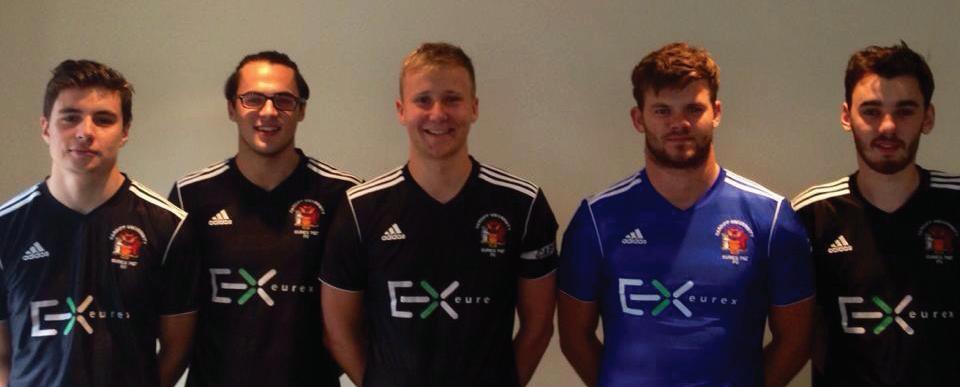
Eurex F&T FC have had a solid pre-season going into the first round of groupstage fixtures this week. With goals not being hard to come by, captain Paul Varty believes that they can be a force to be reckoned with in the IMG competition, and could even qualify for one of the top two leagues after Christmas.
What’re your hopes for this season?
After an enjoyable season last year, we are now aiming to build the team. We have a great new bunch of players who have filled in any holes we had in the side. We have a large squad and we are ambitious. I think after Christmas we are aiming to be in the top two leagues.
Who’s your star player?
In the pre-season we have had players shining in all areas of the pitch. I’m hoping our top scorer of last season, Ash, continues as a danger up front with our new striker Matt, who scored a hattrick in his debut in pre-season. We also have new partnerships in the centre of midfield,
which we are hoping will progress well. Before the season started we were struggling for a left back and our new player Liam has filled the role perfectly, but I think our star player for the season will be our new goal keeper Giordie Griffith, who has shown his class in our friendlies in a key position.
What does your group look like?
We are in group three up to Christmas and, although we know that all games in IMG will be challenging, we believe we can get enough points to qualify for one of the top two leagues. Most teams in our group have no experience of playing so we will be going into every match with no assumptions and concentrating solely on our own game.
How has the preseason gone?
We are happy with how our preseason has gone, with a very successful win in our first game. We have been lucky with our generous sponsorship with Eurex, and have managed to get some good equipment to help build the team in our training sessions. We
have also managed to get the feel of playing as a team in our two friendlies before the season starts. I am very happy with our new recruits and I think the team will have a very successful year.
Who’re the jokers in the squad?
A few players stand out as jokers of the squad, the freshers, Matt and Seb, are already very lively on socials, whilst Rav is still one of the main jokers after he took up the role last year. George, who played last year, is injured so is very much a social member and he is always involved in the antics.
Has the IMG setup been better organised this year?
This is my first year as a captain and the IMG seems very well organised so far. The system seemed to work well last season and I think IMG is a brilliant part of the university, giving more students a chance to get involved in sport. I think with an IMG committee this year any problems that there were last year will be smoothed out as the league progresses and we’re looking forward to
seeing how well the competition goes this season.
What is your style of football as a team?
As a team we tend to keep the ball on the ground, utilising the centre of midfield and working our way forward. At the back we tend to play it out through the full backs and Harry who can play anywhere across the defence is very composed and useful for working the ball into midfield. Our strikers are quick and strong so tend to have a high success rate latching onto through balls worked by our midfield.
Which of the home nations do you think will qualify for Euro 2016?
I think that during qualifiers Bale could carry Wales through, although I can’t see them getting very far once the competition’s final stage starts. England should qualify although you can never rely on them to perform as well as they should. Although N. Ireland and Scotland have been fairly successful so far in qualifying, I don’t think we will be seeing them in action in 2016.
I am very happy with our new recruits and I think the team will have a very successful year
‘‘ ‘‘
Cardiff Blues’ front row of Gethin Jenkins, Matthew Rees and Adam Jones are past it. Either that, or their performance against Ospreys last time out in the League was a collective off-day, as the vastly experienced former Lions trio were annihilated at scrum-time by an onpaper inferior Ospreys front-row at the Liberty Stadium.
indicate that the time has come to look for some younger alternatives.
The truth of the matter was that promising Ospreys loose-head
Nicky Smith had the better of Jones, Scott Baldwin recorded better statis-
seemed to provide no trouble to Ospreys’ Moldovan international tight-head Dmitri Arhip.
Although all three have been stalwarts for Welsh Rugby in past few years, and made up the firstchoice front row for the Lions’ epic Second Test against South Africa in 2009, their performance in the Welsh Derby may
It was the first time that Mark Hammett had chosen to field all three veterans from the start this season and judging by this showing, regardless of their Six Nations titles, Grand-Slams, and Triple-Crowns, it’s doubtful that the Kiwi will choose to do so again.
bined with his poor form against South Africa in the summer, could see any hope of a World Cup place slip by.

This is especially bad news for Adam Jones, who endured a torrid return to his old stomping ground in front of a watching Warren Gatland. This, com-
Additional concerns do also exist for Hammett though, as the Blues lacked any real creativity against the Ospreys, with a 26-15 final defeat somewhat flattering given the dominance the home side had enjoyed. What will also be of major interest to Blues fans is that former player Jamie Roberts has been linked with a return to the capital over the last week, with Racing Metro coach Laurent Labit questioning his “effectiveness”. Hammett has classed these rumours as pure “speculation” at this stage, with Chief Executive Richard Holland making similar comments.
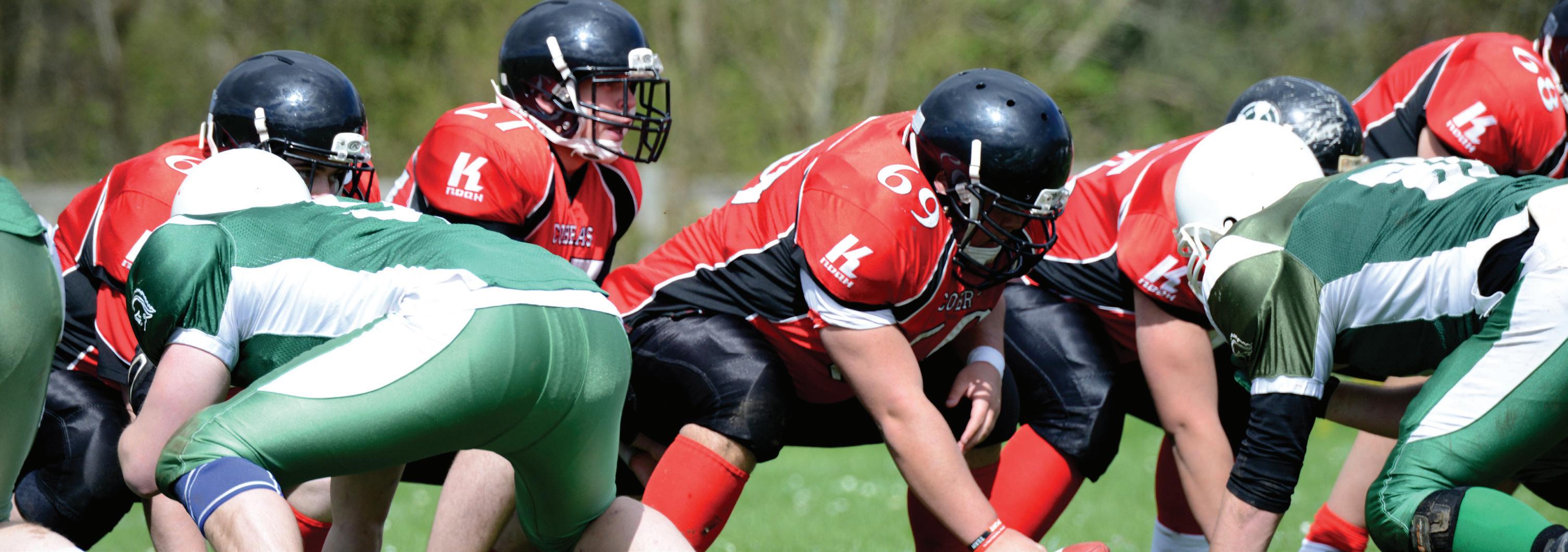
On September 21st at 4:30am, a group of players from the Cardiff Cobras American Football Team began a grueling journey to the foot of Mount Snowdon. Their aim was to climb Snowdon, Cadair Idris, and Pen Y Fan inside 24 hours, conquering the three highest summits in Wales.
Sensing that it might not be challenging enough, it was decided that they would wear their game pads during the climb, just to add a few more degrees of difficulty.
There will undoubtedly be many obstacles in the way of the team this season
The challenge acted as valuable preseason training for the men in red, but its main purpose was to act as a fundraiser for both the club and the Dorothy House Hospice, a charity with which the club has significant personal connections.
In the end the mountains were no match for the boys as they descended down Pen Y Fan to complete the challenge in just under 13 and a half hours, tired but ultimately victorious.
The total amount raised has yet to be confirmed by the Athletic Union, but the money will help the club finance new kit, and go towards helping the hospice function as a vital service to those in need. The players
New Cardiff boss Russell Slade has warned his players that it will take a kick in the backside and a change of attitude if they are to climb their way up the Championship table.

Slade, who took charge of his first Bluebirds game at the weekend, said his squad still have time to turn their season around but it will “hurt” and “take hard work” if they are to achieve the top-six finish that the former Leyton Orient boss has targeted.
In the build-up to Saturday’s game against Nottingham Forest, Slade made all the right remarks regarding the progress of the club – but like most parts of life, saying that changes will happen is far easier than actually getting it done.
that took part can look back on the experience with pride at a fantastic achievement for the club, the charity and the university.
It was the first of many challenges that the Cobras will face this year. After last season was filled with cancelled games, injuries and disappointing results, there is a genuine sense of optimism surrounding the club in the run-up to the new season.
New coaching staff, new ideas and a very promising rookie class are just some of the reasons to believe that this year could see a return to form for the historically successful club.
However, they will face stiff opposition in all their fixtures this year, not least against UWE Bullets and Swansea Titans who were two of the leading teams in last year’s BUCS Western Division, in which the Cobras finished sixth, with two wins from their five games.
In this year’s restructured BUCS League, the Cobras will be hoping to improve on that position as part of the new South West division, which will offer them the chance to be promoted to the elite five-team Premier South division.
The club saw around eighty students show up to their Rookie Day, a
Slade-sceptics are more than a little baffled at Vincent Tan’s appointment of a man who has not managed above the third tier of English football or coached a group of multimillion-pound personalities before.
Everyone involved at City is hopeful, of course, that the new man can deliver on his promises, but are hastened to believe that he can really unite what appears a pretty disinterested dressing room, let alone get them to challenge for a playoff spot.
Slade will slowly be coming to terms with the challenges and complications that are thrown up for the manger of Cardiff City in the modern age. Having already had to rule out rumours that ever-controversial owner Vincent Tan will be picking
huge number trying out a sport that nearly all of them had no prior knowledge of. This is just one of the challenges presented by having an American Football Team at university level; the ability to coach and learn basic fundamentals quickly and safely, in time for the opening games of the season.
Coupled with a high squad turnover and the physical nature of the game, it is often not surprising to see a great deal of change in the quality of a team on a year to year basis. However, across many universities there has been an increased investment in the sport, including at Cardiff with the construction of the artificial 3G surface at Llanrumney.
With a reunion scrimmage against the Cobras Old Boys on the 25th October, followed by the first league game against Exeter Demons a week later, the team must come together quickly. Like every season, there will undoubtedly be many obstacles in the way of the team this season through injuries, bad weather and other unpleasant surprises. But for the first time in a while, there’s reason to believe that the Cobras are slowly but surely climbing back towards the top of the mountain.
the team each week, there is no doubt that the shadow of the Malaysian owner will be lingering over Slade throughout his time at Cardiff, however long or short that may be.

If Slade is genuine about his aspirations, the Bluebirds, currently sitting mid-table, must start producing winning results on a more regular basis, starting with this week’s games against Ipswich and Millwall.


National football team are top of their European Championship qualifying group after fixtures against Bosnia-Herzegovina and Cyprus
Dan HeardWales have made their best start to a qualifying campaign in over ten years, following outstanding performances against Bosnia-Herzegovina and Cyprus. Chris Coleman’s men have taken seven points from a possible nine so far to stay top of Group B and make their dreams of competing in Euro 2016 all the more possible.
After a narrow, late win over Andorra last month, on ‘that’ con-
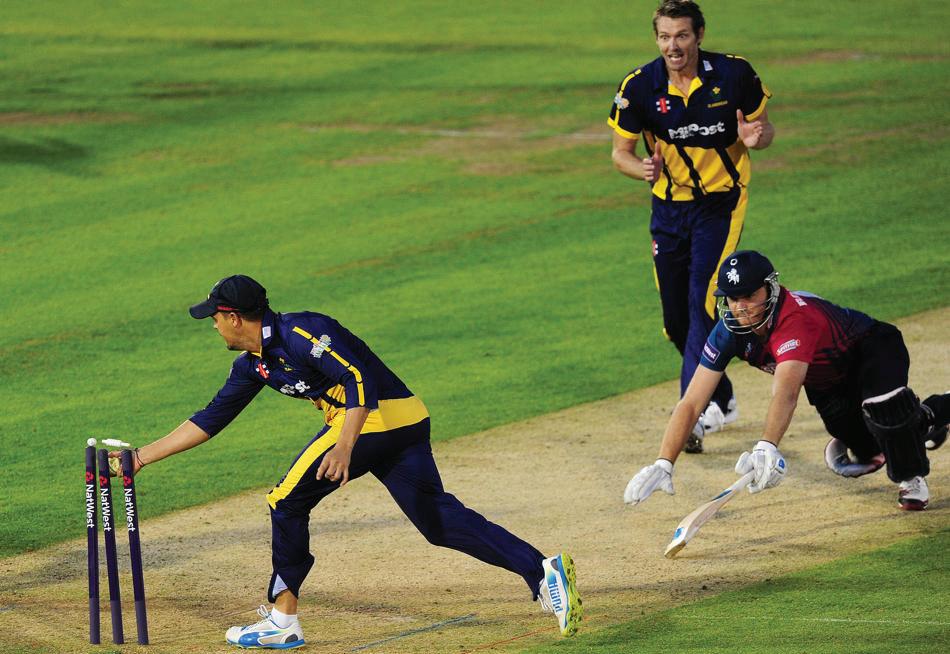
troversial 3G pitch, fans could be forgiven for being sceptical coming into Friday’s game against a side who performed admirably at this summer’s World Cup, boasting quality players such as Edin Dzeko and Asmir Begovic in their ranks. However, the attitude and performance was first class, despite the absence of ten first team players.
Even without the likes of Aaron Ramsey and Joe Allen, Wales were arguably the better side, matching
Bosnia in the first half and then outplaying them in the second, and could have easily won it late on had Gareth Bale’s shot not been expertly saved by Begovic. At the other end, Welsh goalkeeper Wayne Hennessey produced some fantastic reaction saves, while the unlikely pairing of Ben Davies and the impressive James Chester in defence produced a solid performance.
Undefeated at the Cardiff City Stadium in eight matches, it is not
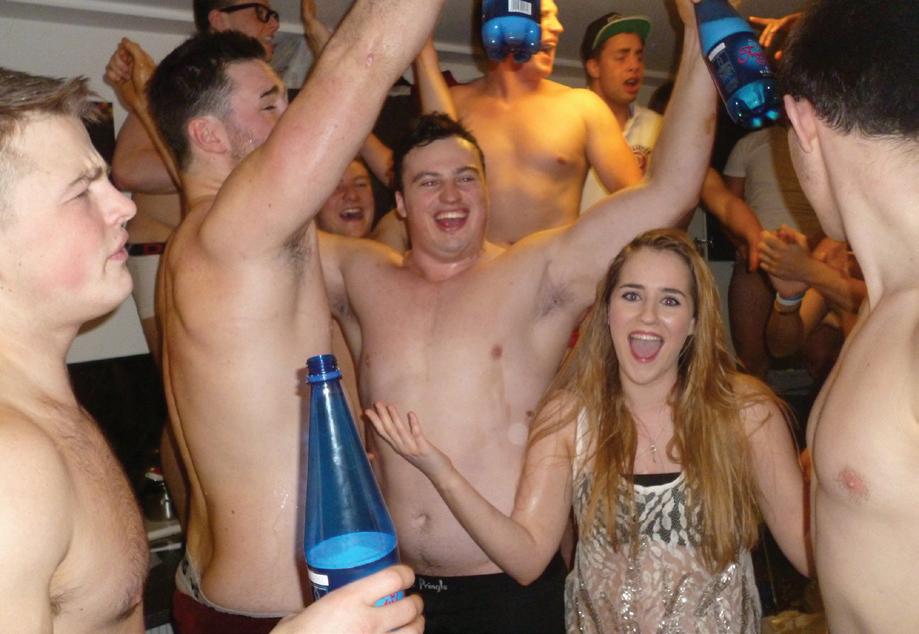
hard to see why a new blend of fluid passing and gutsy attacking, an entirely new style of play in truth, has been adopted quickly and to great effect. Although Wales boss Chris Coleman has attracted his fair share of criticism, his perseverance in installing this brand of football is impressive to say the least. This was definitely reflected in the recordbreaking attendance of 30,741 fans for an international match, creating an incredible playing atmosphere.

Continued on page 24
